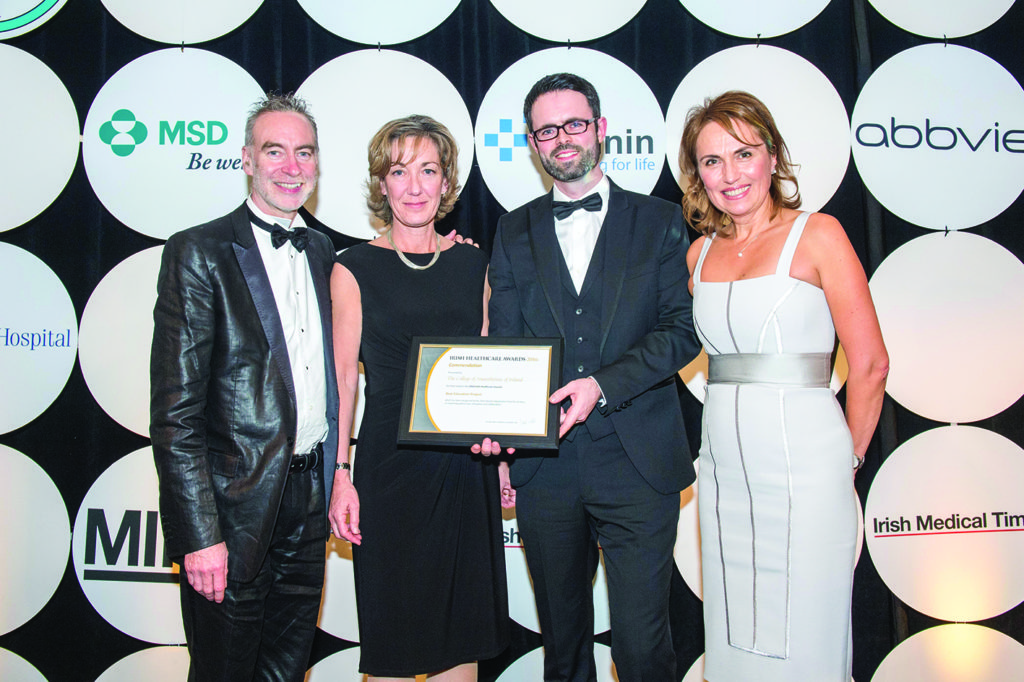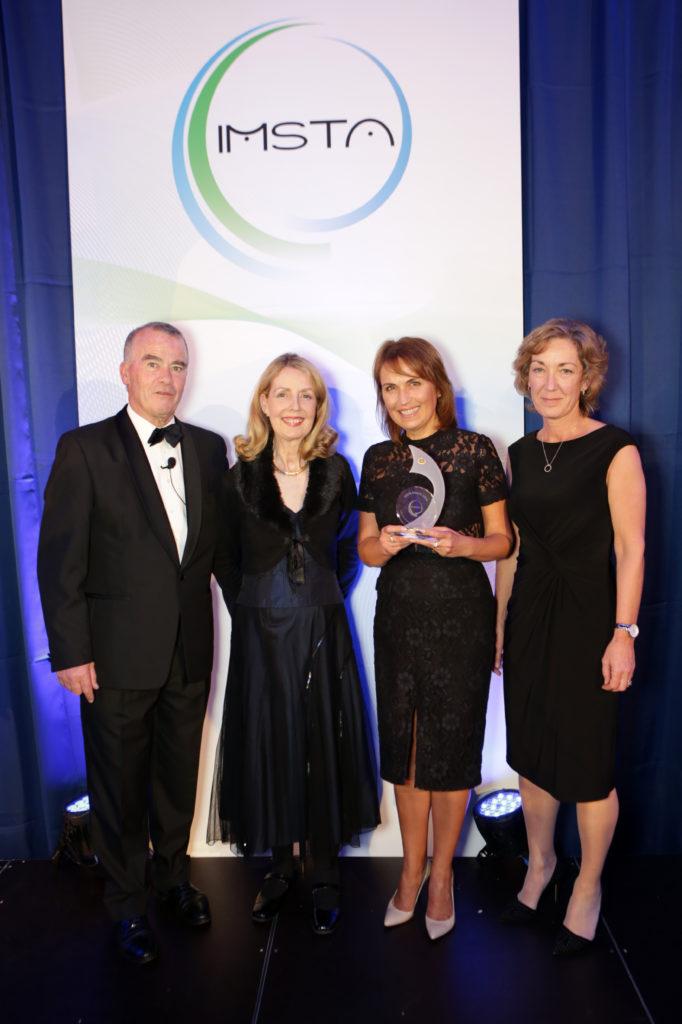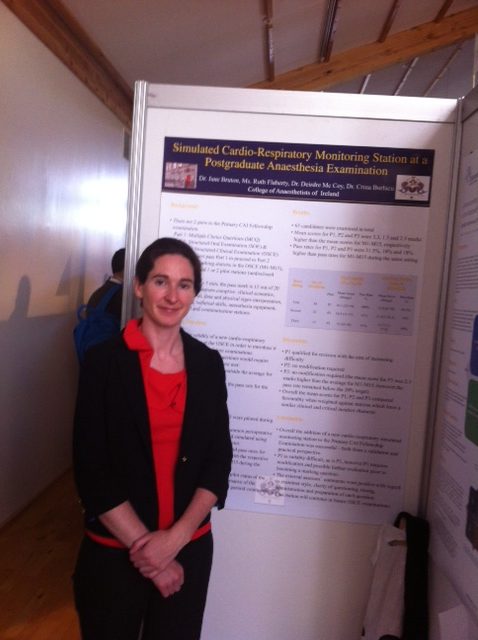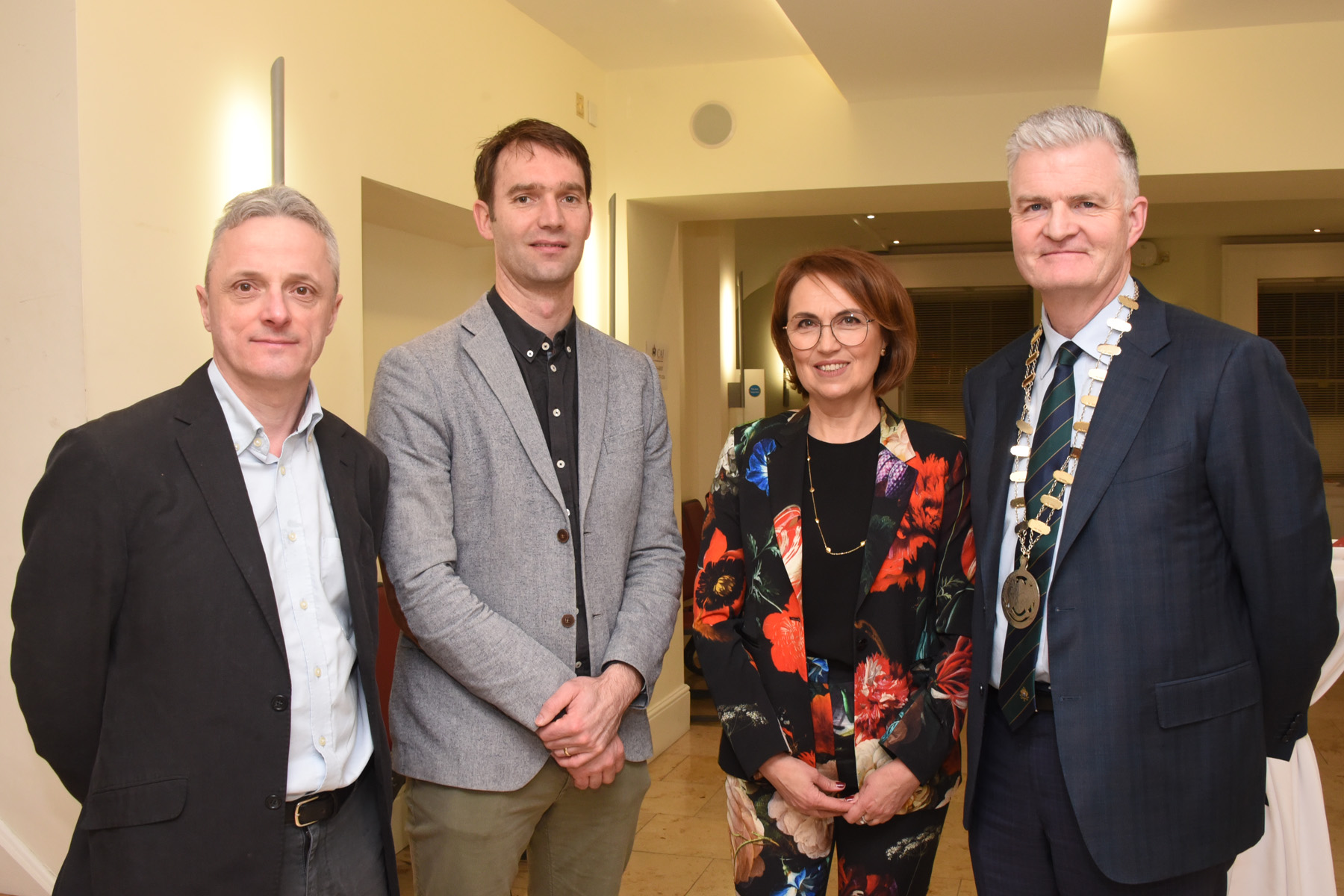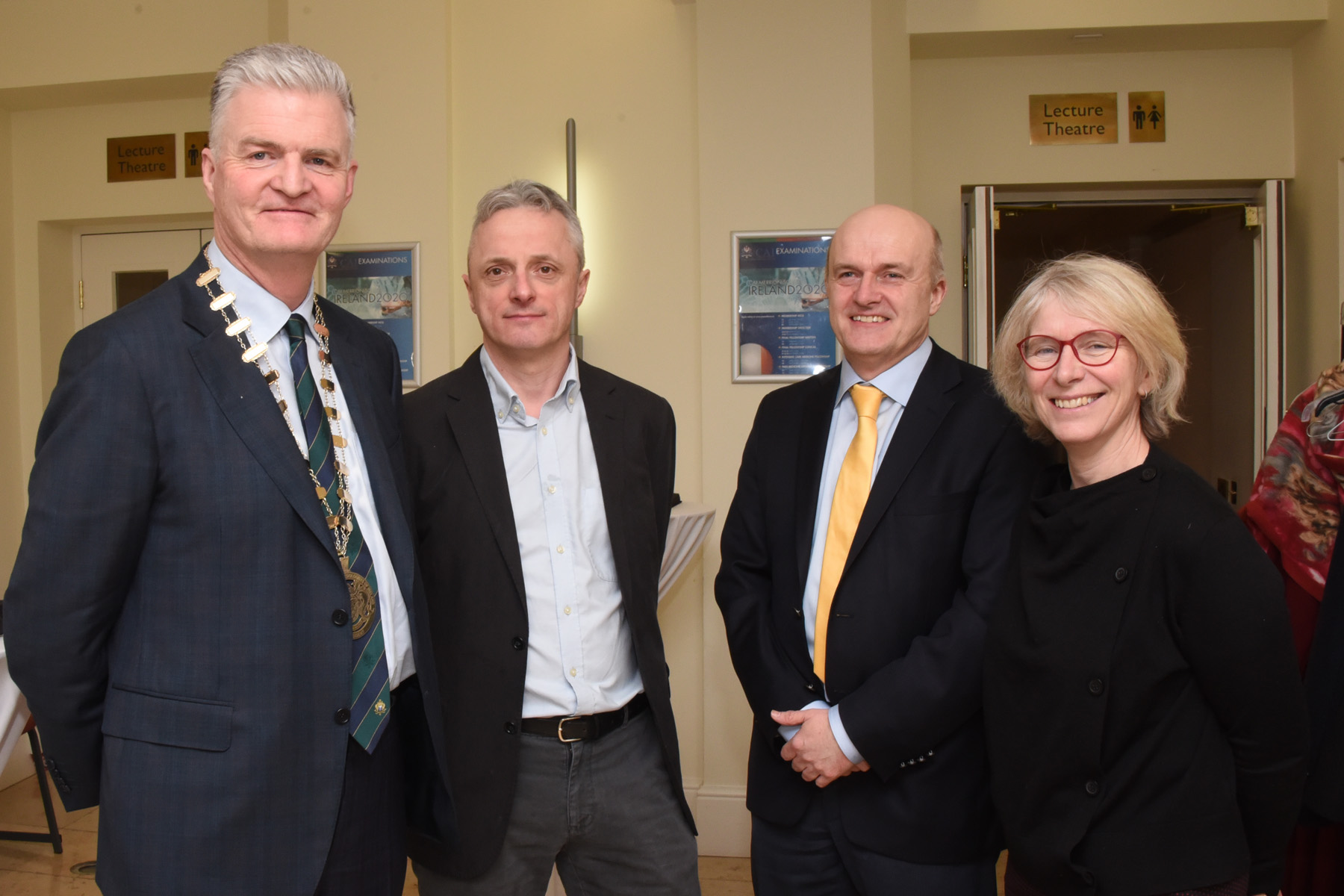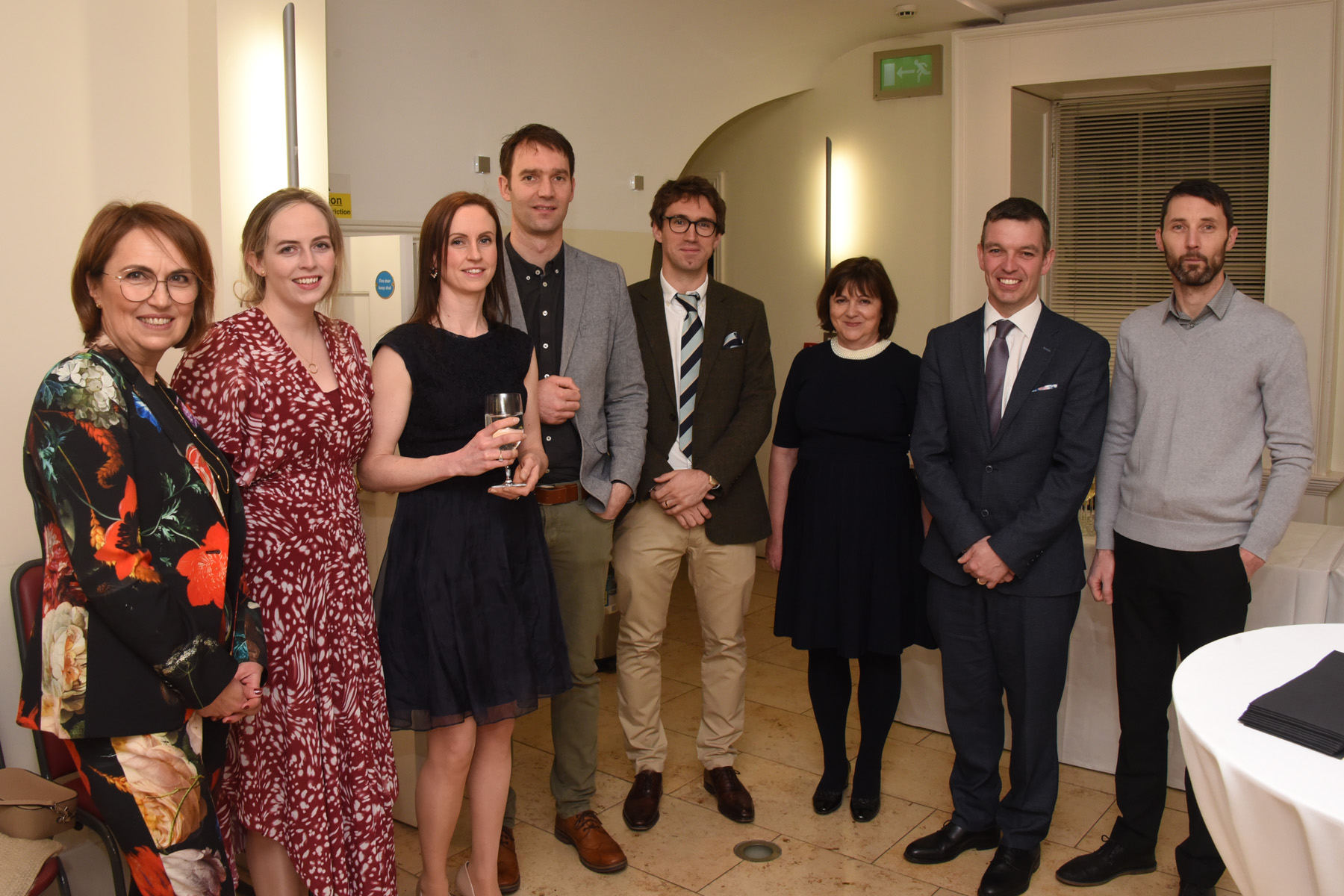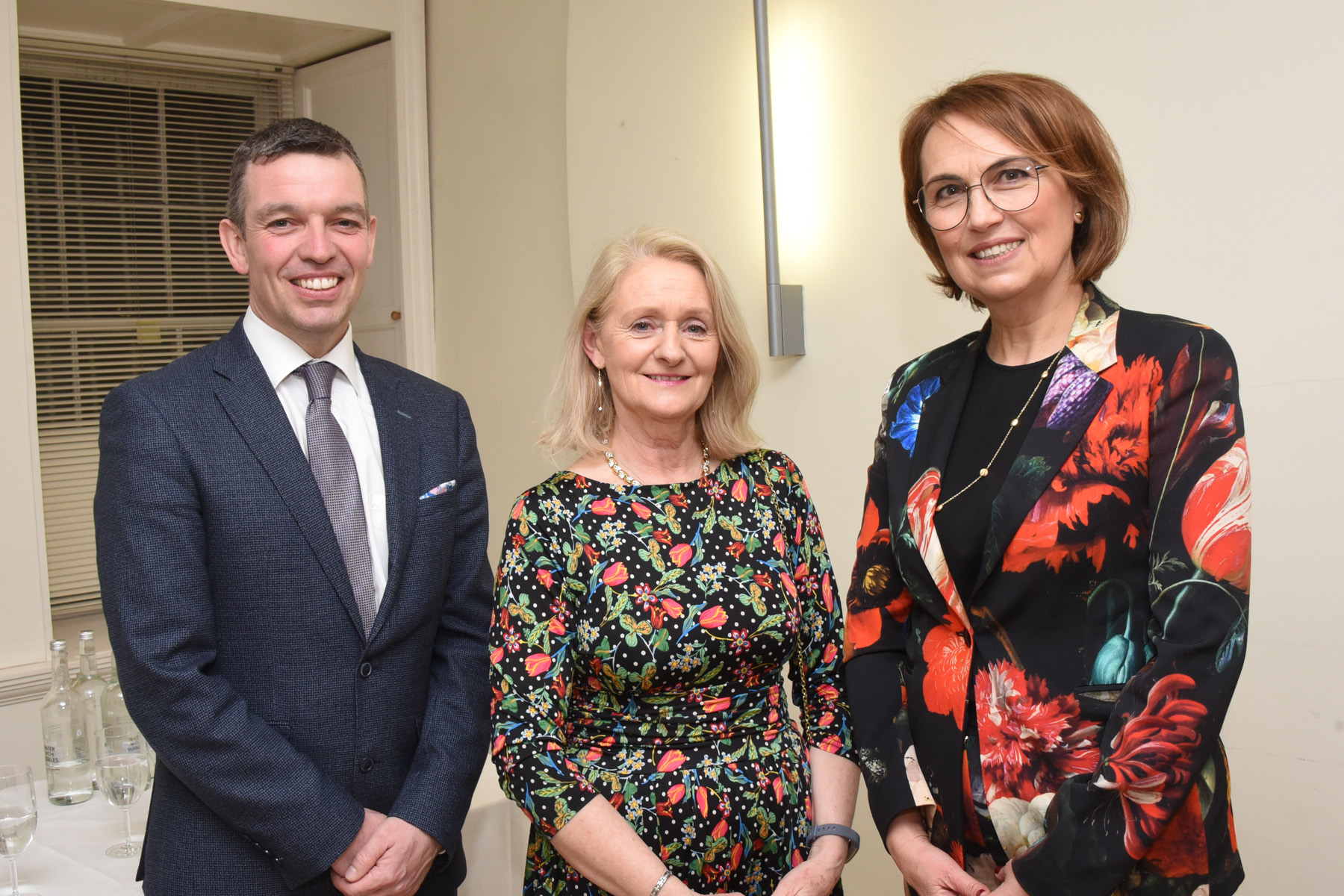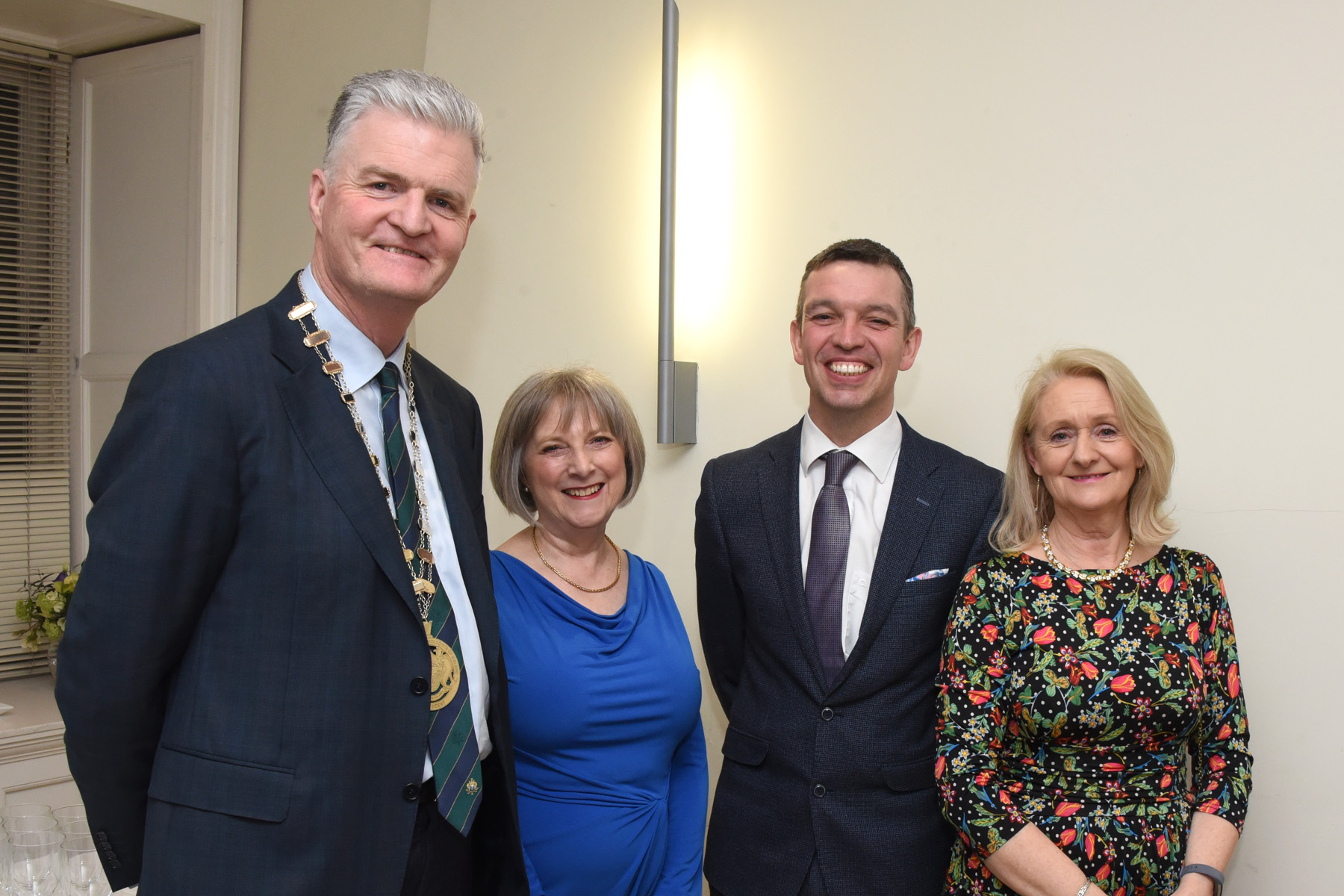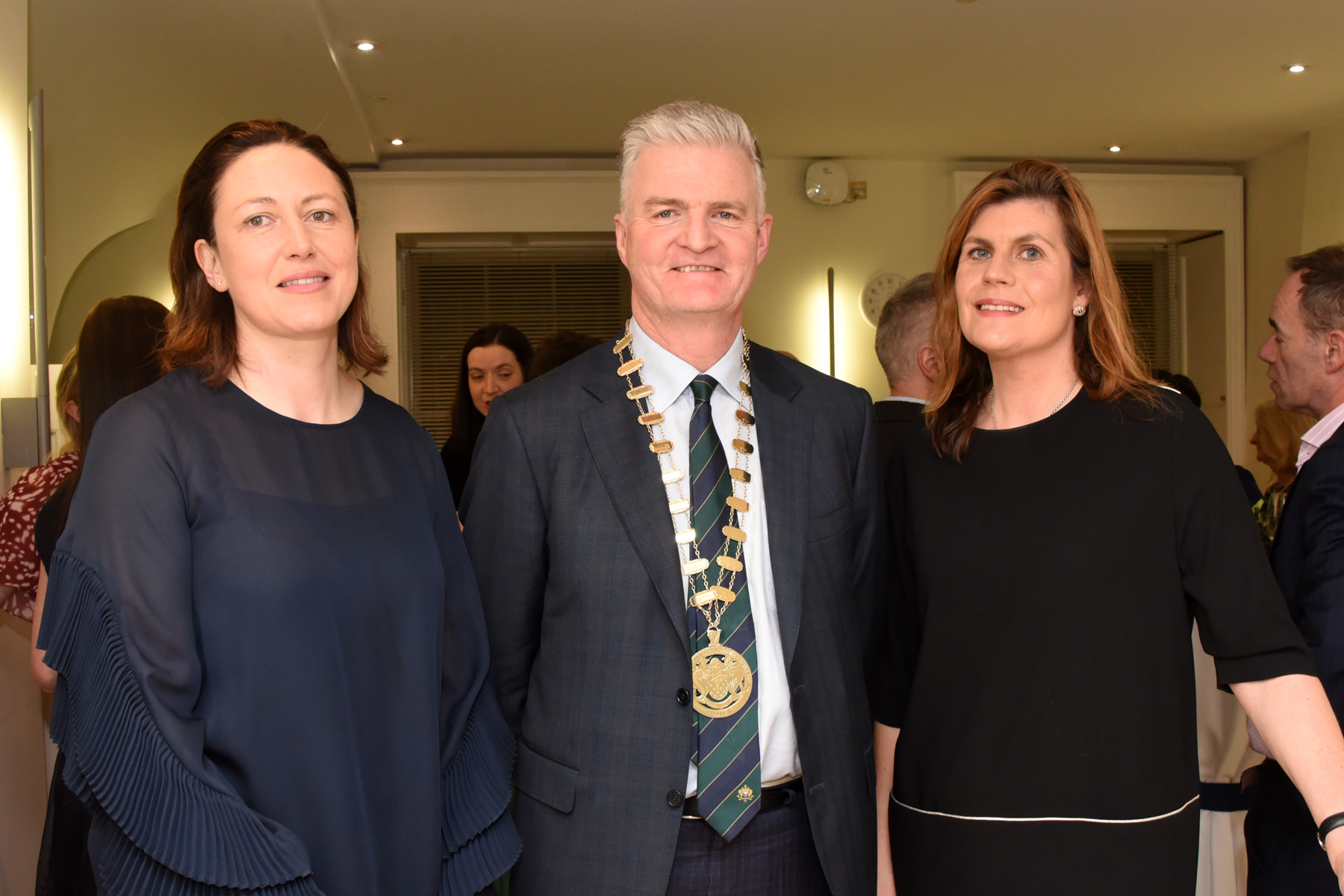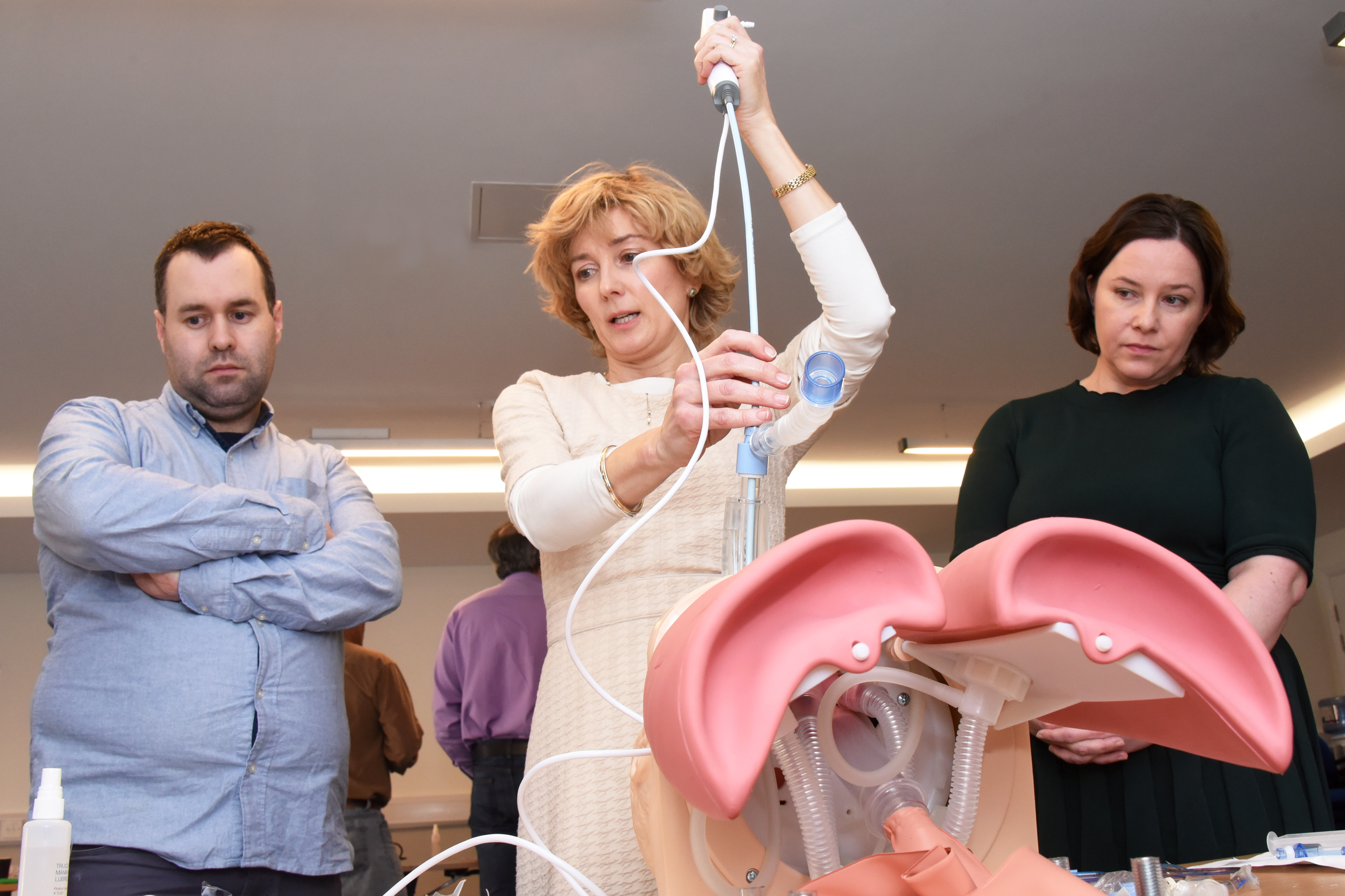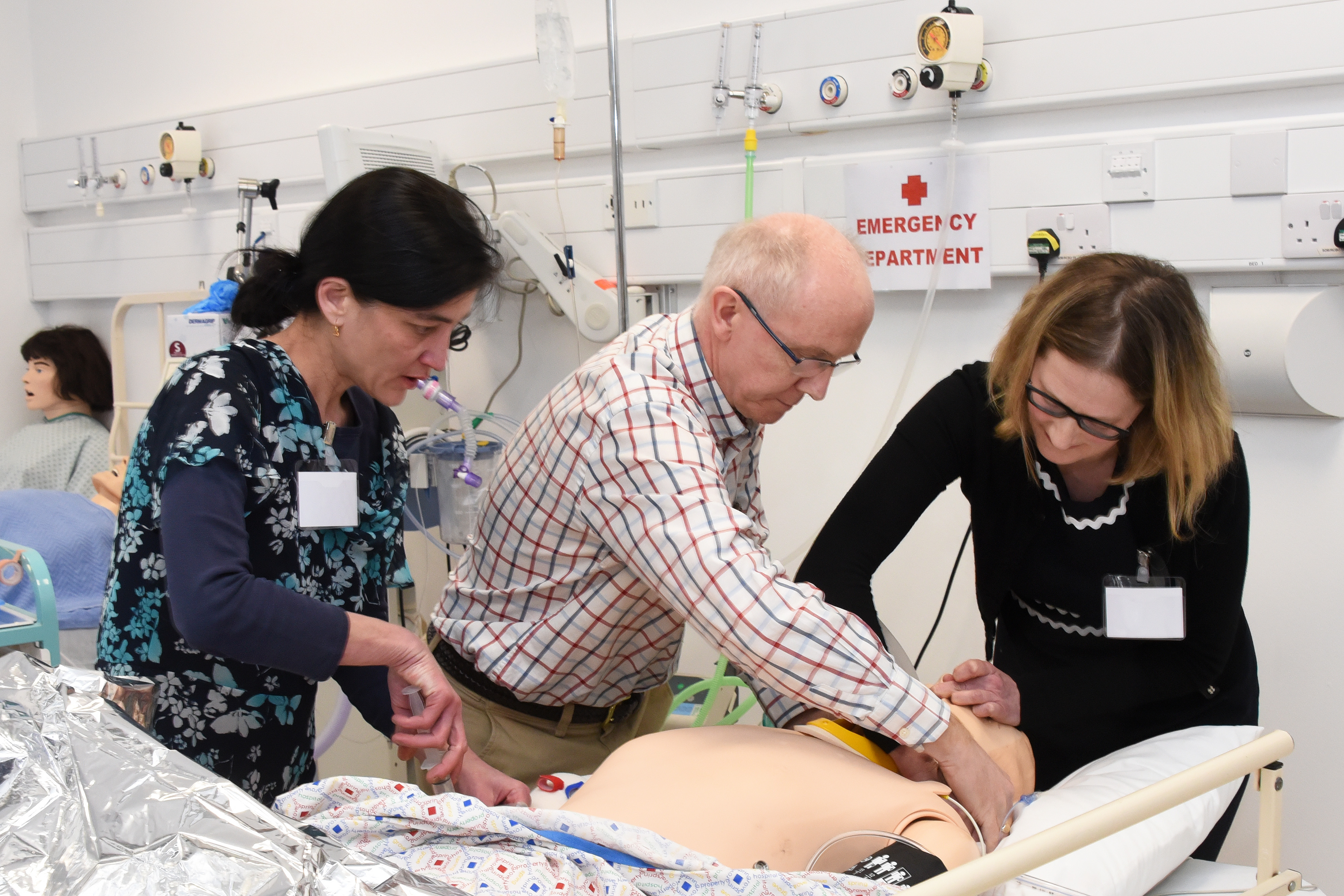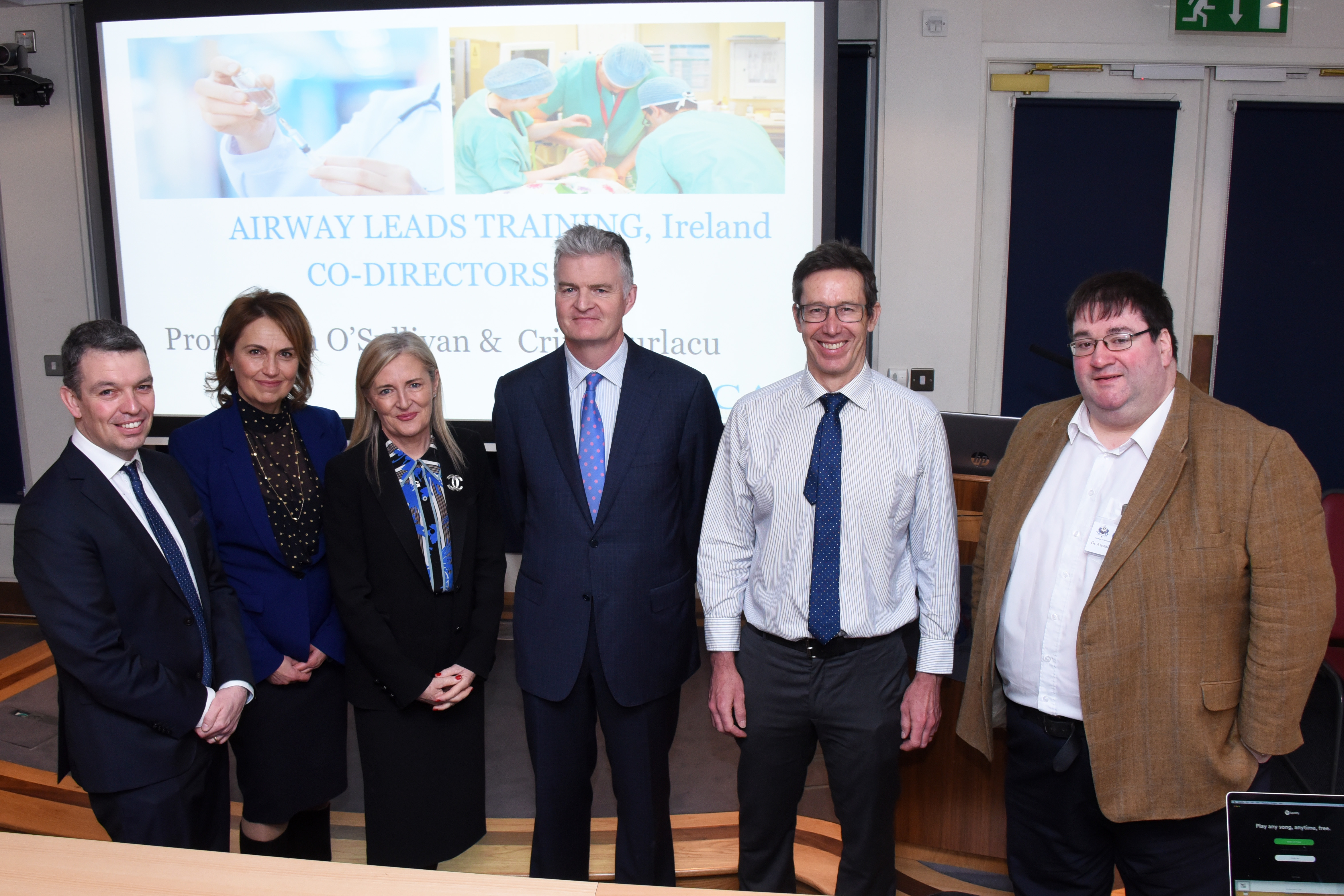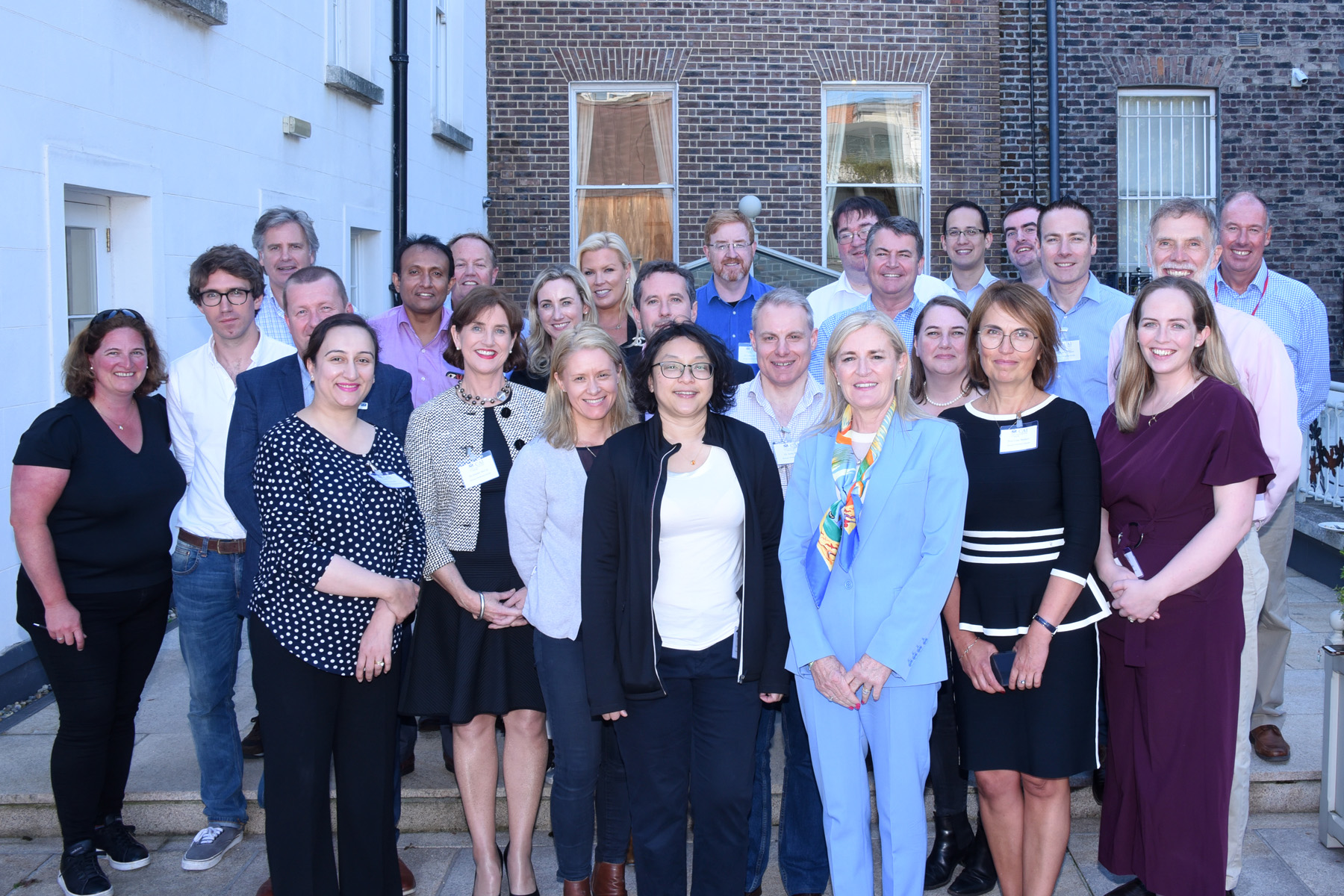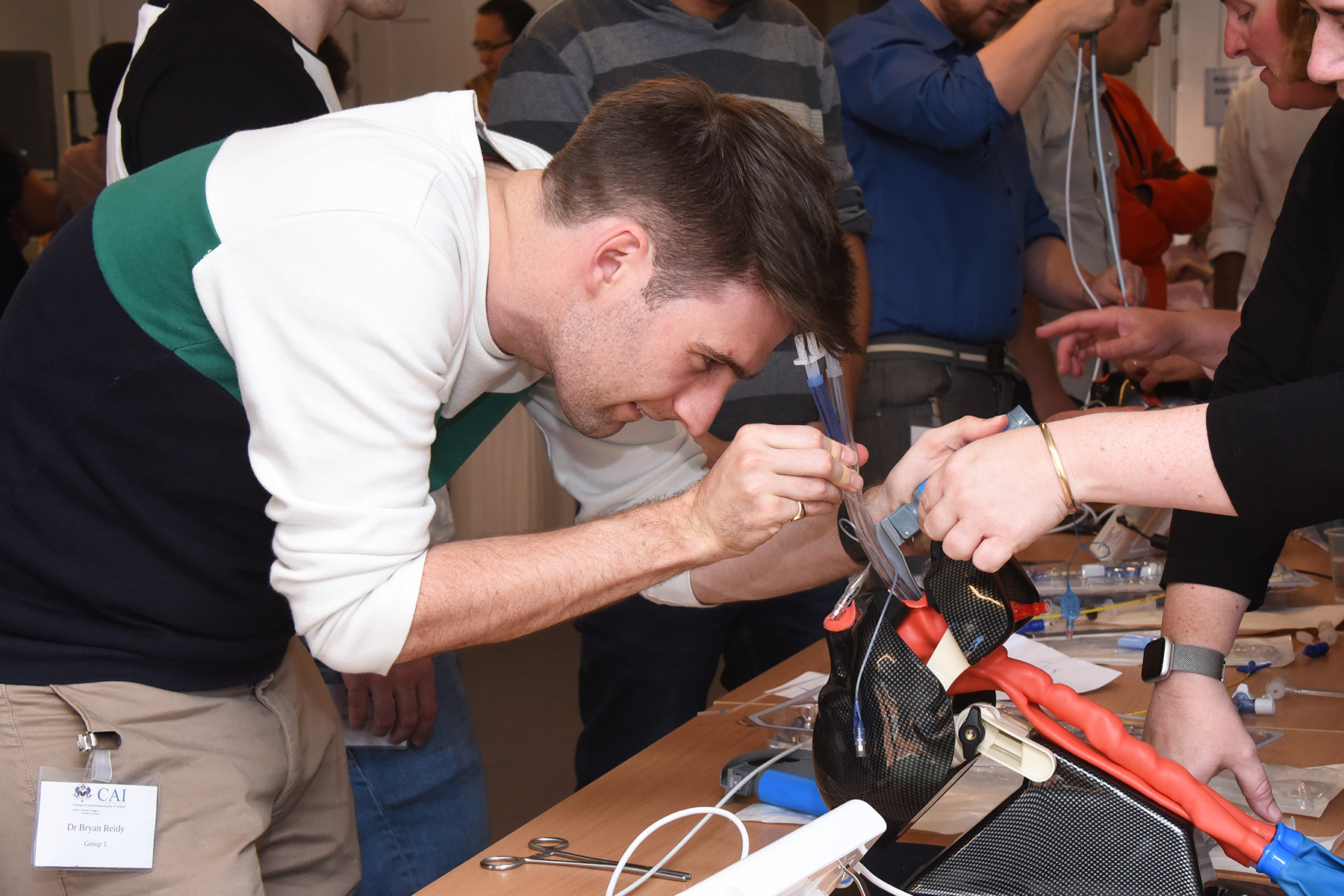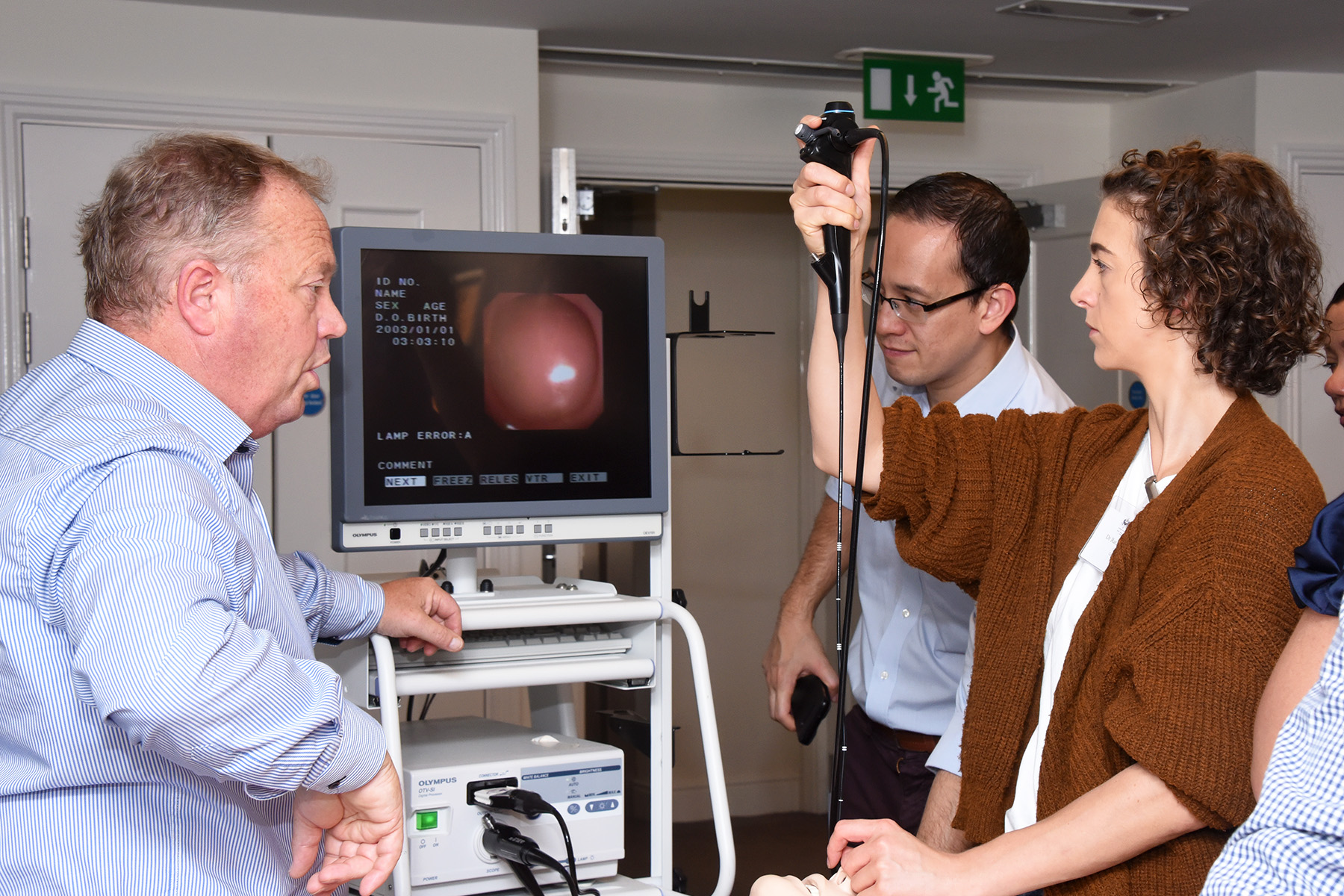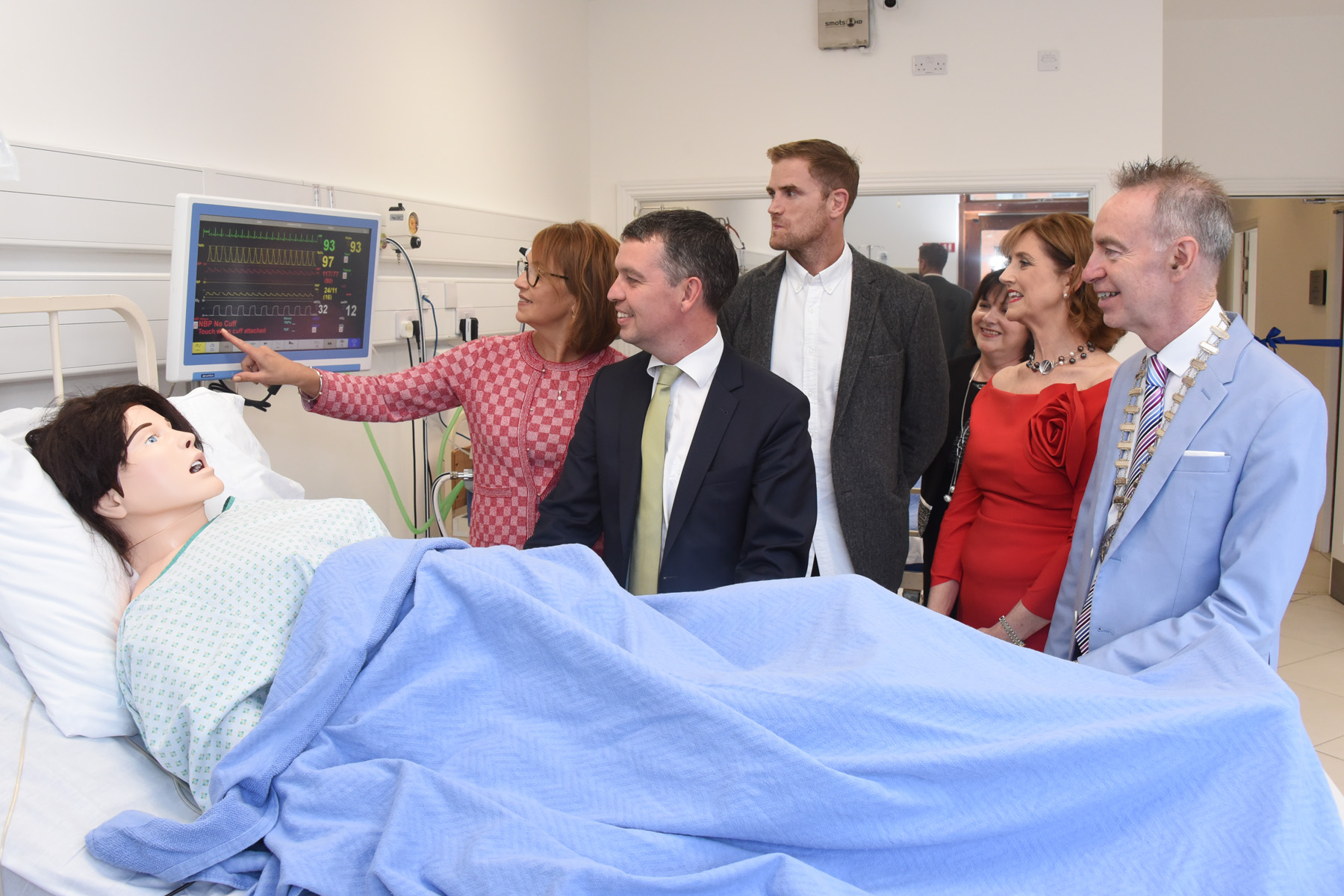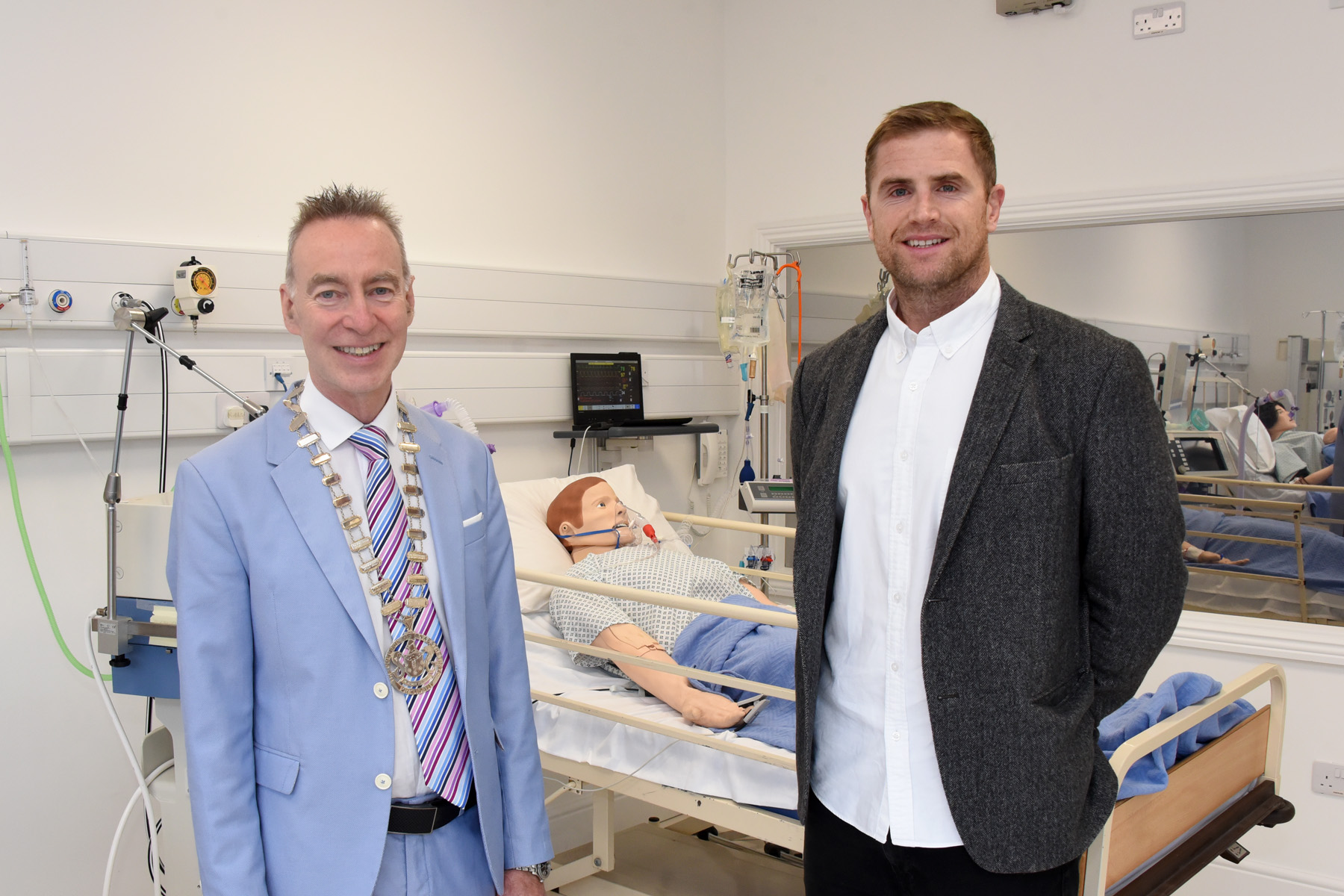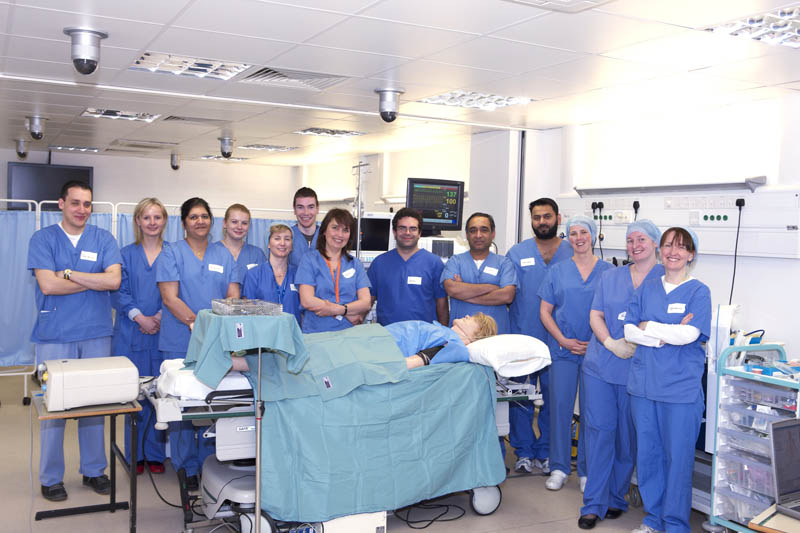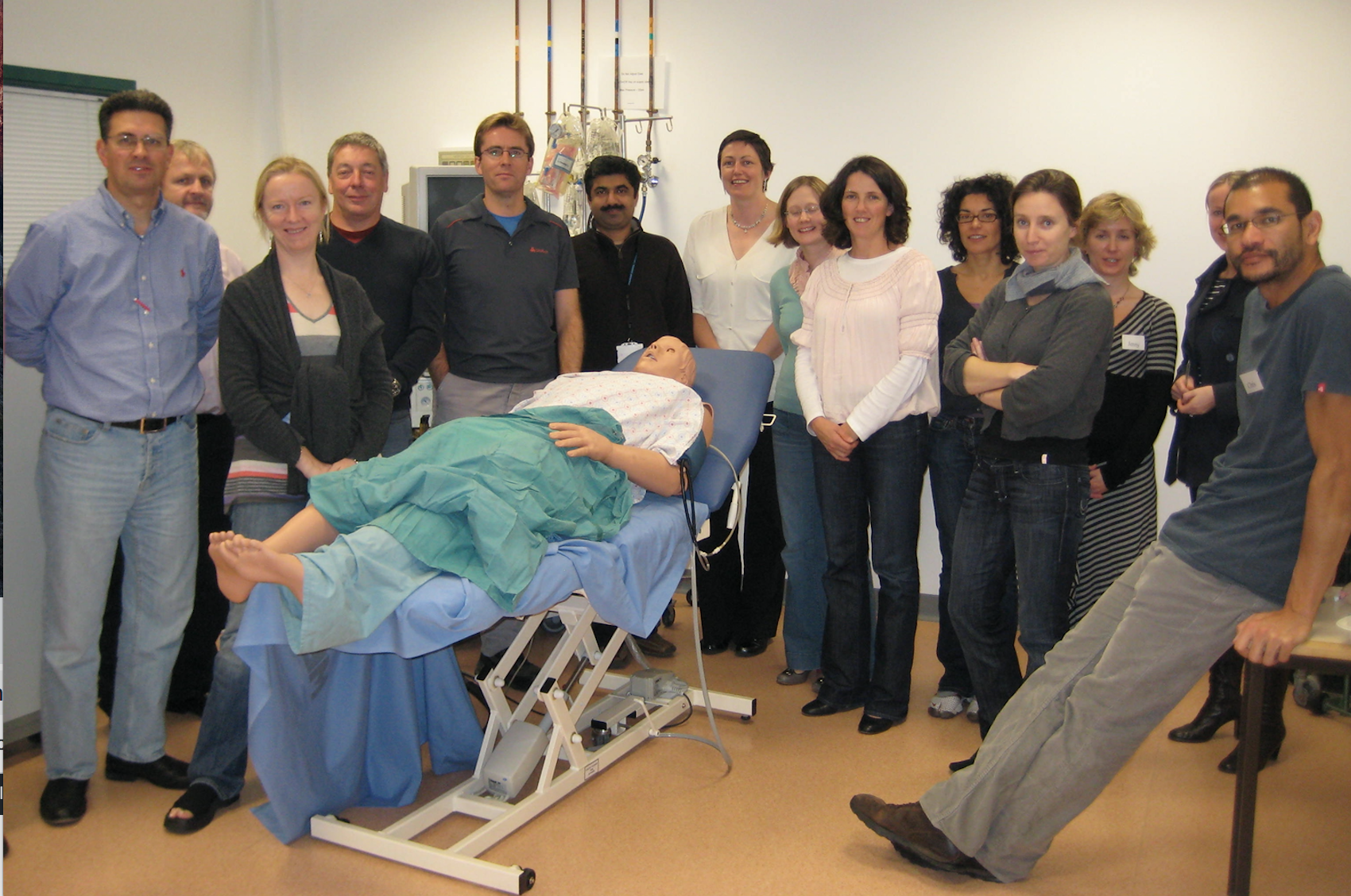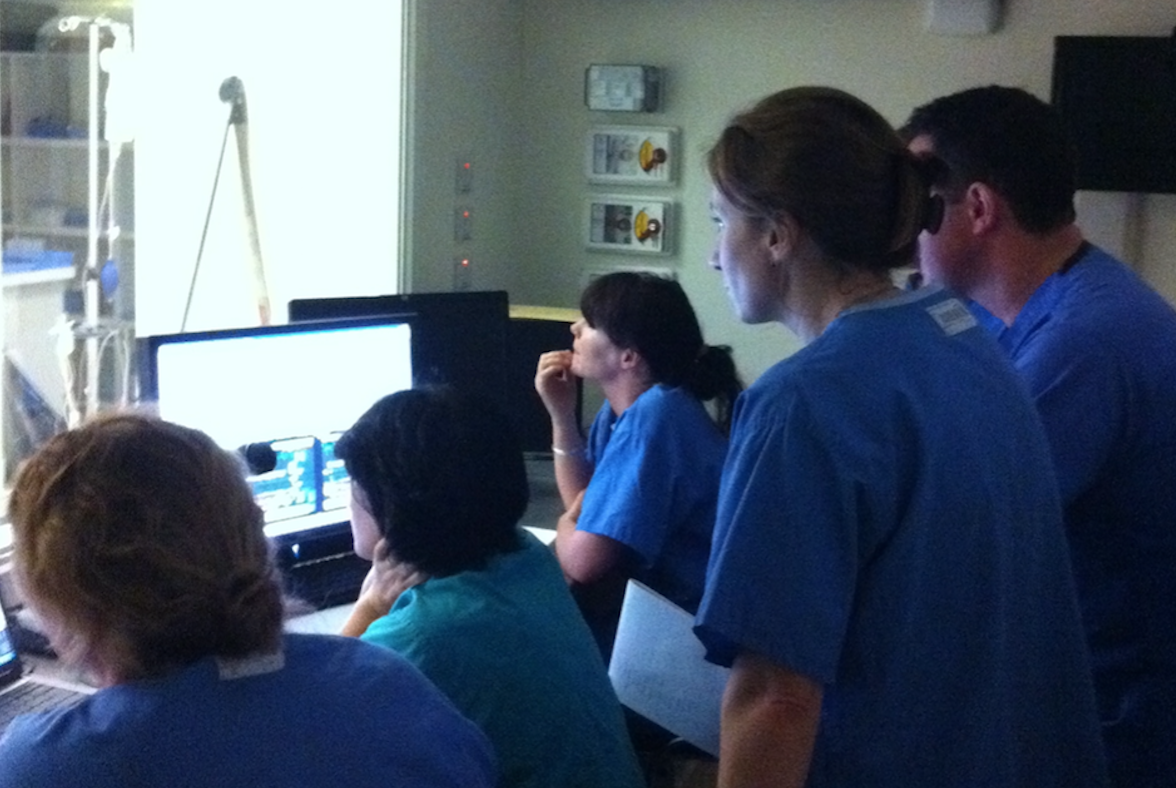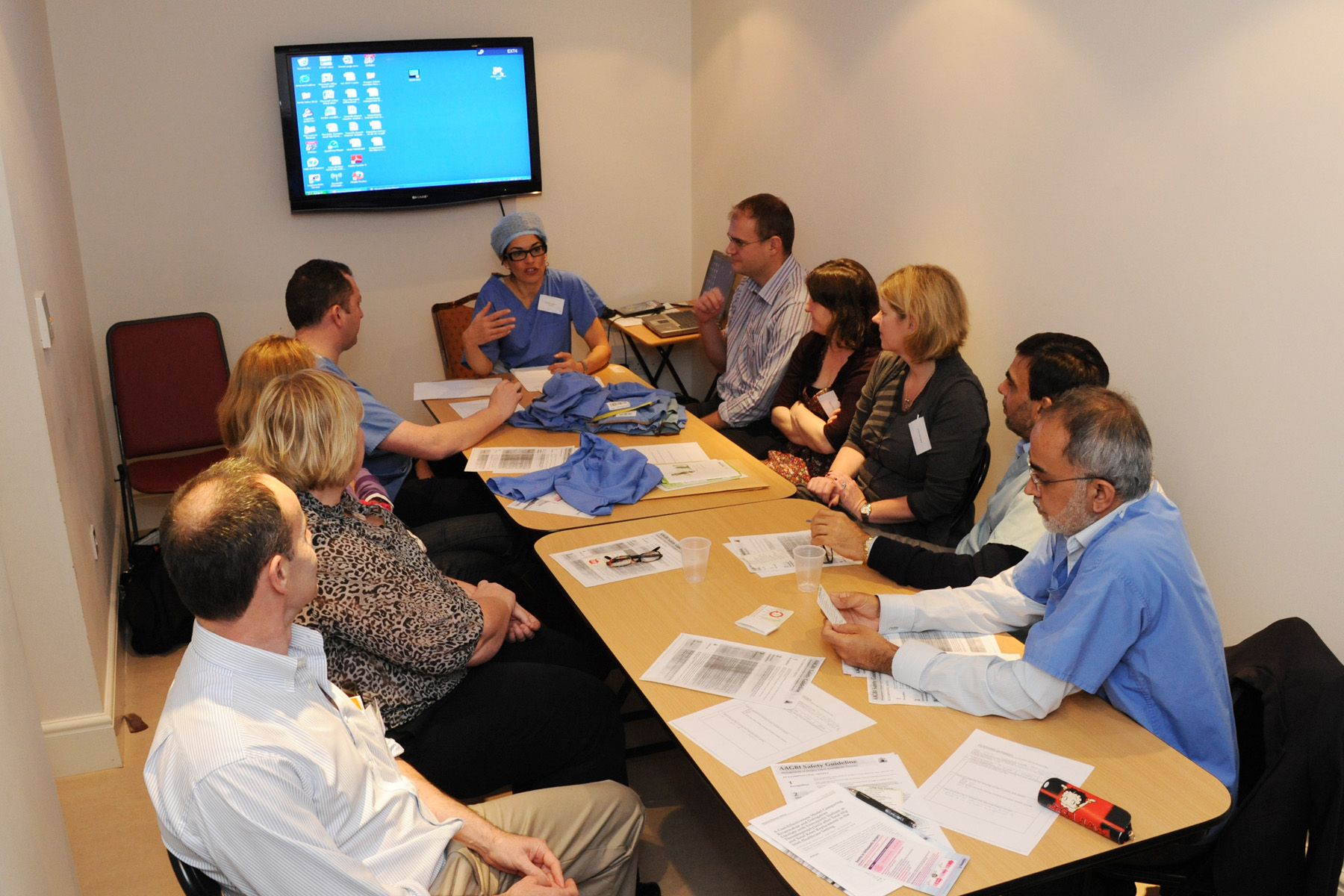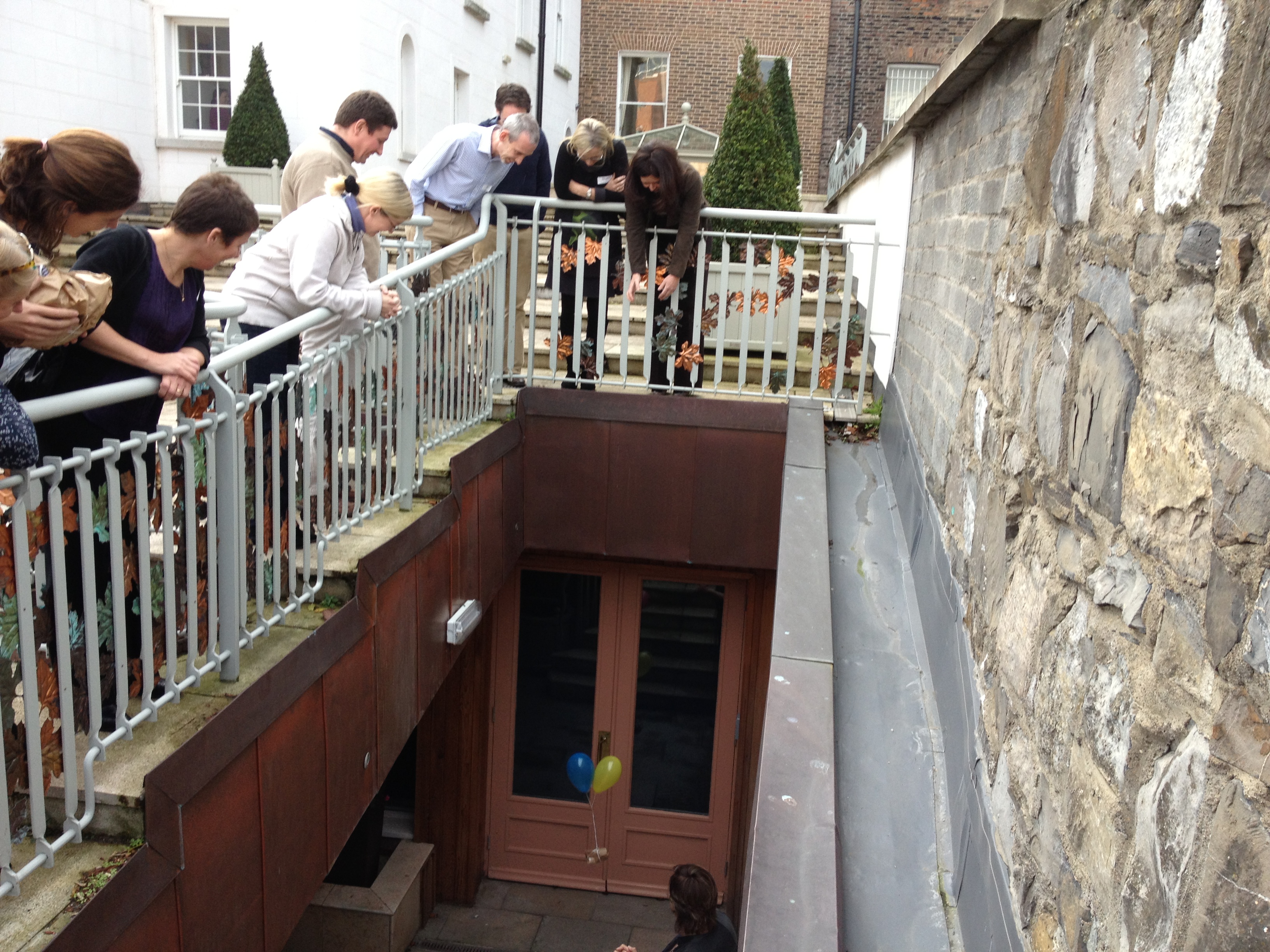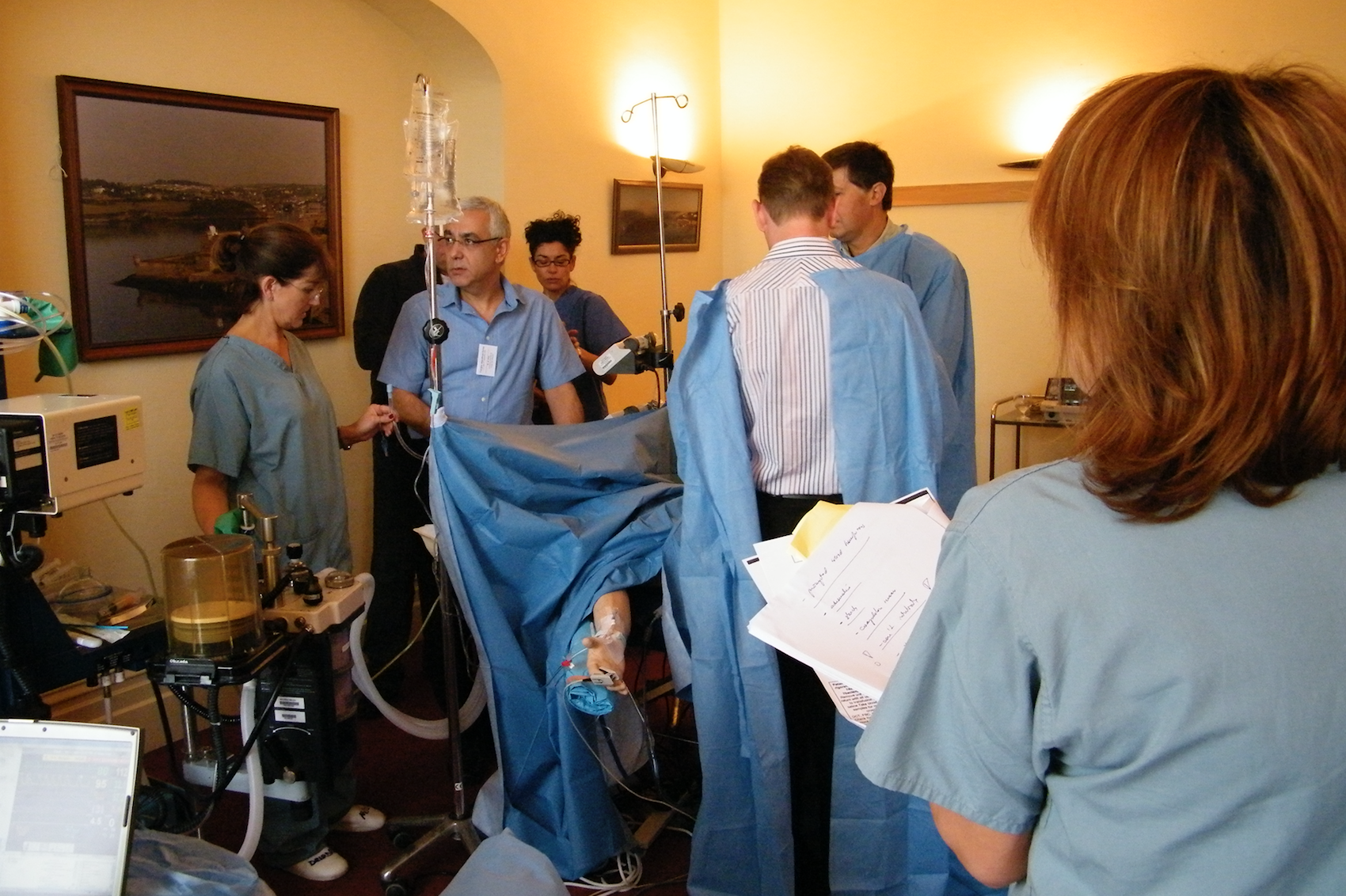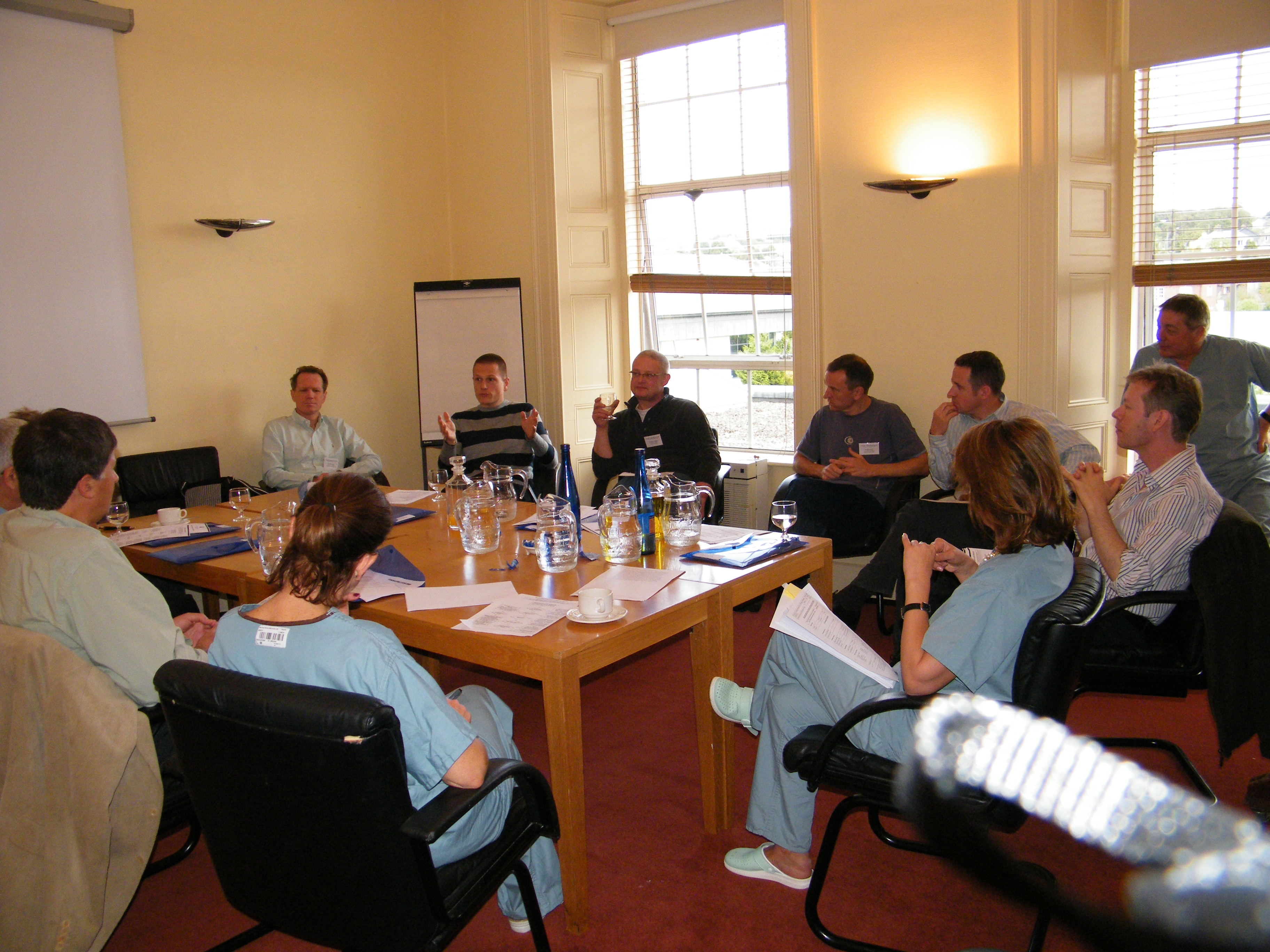Simulation Programme
 The College launched the CAST (College of Anaesthesiologists Simulation Training) Programme in 2010, when a handful of optional simulation courses was delivered to a group of anaesthesiologists with an interest in the proposed method of experiential learning. Since then the programme has expanded, both in terms of the range and number of courses offered. Every year more than 30 simulation courses are offered to trainees on the Specialist Anaesthesiology Training (SAT) programme. A range of courses are also delivered annually to consultant anaesthesiologists. These courses present doctors with an opportunity to refresh their knowledge and practise their technical and non-technical skills in a completely safe learning environment. A network of consultant anaesthesiologists, fellows, nurses and college administrators contribute to the success of the programme. Our courses are delivered by expert clinicians with both general and sub-specialty interests who have all completed The Train the Trainer Simulation Facilitator course. In 2018, the new Critical Care Simulation Suite was launched, offering learners enhanced training facilities with two simulation bays. This new facility provides many opportunities for anaesthesiology simulation training as well as the prospect of future collaborative projects with other specialties and disciplines. Follow @CAST_CAI Check out our list of UPCOMING EVENTS.
The College launched the CAST (College of Anaesthesiologists Simulation Training) Programme in 2010, when a handful of optional simulation courses was delivered to a group of anaesthesiologists with an interest in the proposed method of experiential learning. Since then the programme has expanded, both in terms of the range and number of courses offered. Every year more than 30 simulation courses are offered to trainees on the Specialist Anaesthesiology Training (SAT) programme. A range of courses are also delivered annually to consultant anaesthesiologists. These courses present doctors with an opportunity to refresh their knowledge and practise their technical and non-technical skills in a completely safe learning environment. A network of consultant anaesthesiologists, fellows, nurses and college administrators contribute to the success of the programme. Our courses are delivered by expert clinicians with both general and sub-specialty interests who have all completed The Train the Trainer Simulation Facilitator course. In 2018, the new Critical Care Simulation Suite was launched, offering learners enhanced training facilities with two simulation bays. This new facility provides many opportunities for anaesthesiology simulation training as well as the prospect of future collaborative projects with other specialties and disciplines. Follow @CAST_CAI Check out our list of UPCOMING EVENTS.
Welcome from the President
As College President I am very pleased to welcome you to the new CAST webpage. 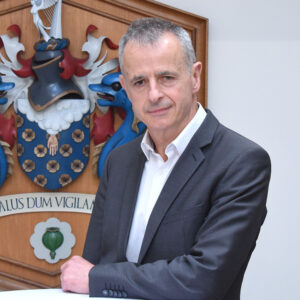 Medicine has become a fast changing highly complex technologically driven speciality. Healthcare is now delivered to individual patients by multiple specialities working together as a team. Never has the value of technical skills, communication, teamwork, decision making and task allocation been more important than in this highly complex, dynamic arena
Medicine has become a fast changing highly complex technologically driven speciality. Healthcare is now delivered to individual patients by multiple specialities working together as a team. Never has the value of technical skills, communication, teamwork, decision making and task allocation been more important than in this highly complex, dynamic arena
History
The College of Anaesthesiologists (CAI) were early adopters of simulation-based training and were the first Irish Postgraduate Medical Training Body to incorporate mandatory simulation into their training programme. The simulation centre was opened in 2010 and further expanded in 2018. The role of simulation is now firmly embedded in the SAT training programme. Each trainee undertakes up to two mandatory training courses per year. These include single-speciality courses for anaesthesiologists only dealing with common and rare adult emergencies, paediatric anaesthesiology emergencies, obstetric anaesthesiology crisis and critical care, as well as multi-speciality courses for anaesthesiology, surgical and emergency medicine trainees. The simulation centre supports many external events and in addition provides a range of courses for consultants, CPD SS doctors and international fellows including an annual train the trainers’ day.
Trainees benefits
The importance of the teamwork is central to the modern healthcare. The simulation laboratory provides an immersive learning environment that not only allows trainees to learn technical skills but in addition, the ability to acquire critical non-technical skills. Simulation provides a safe learning environment in which trainees can manage rare and complex emergencies. The post simulation debrief provides for constructive feedback of team performance. The introduction of CAI Simulation Fellowships has allowed Fellows not only to play a key role in the delivery and evaluation of CAST but also develop specific skills in relation to simulation and feedback. The success of this programme is manifest in the number of presentation and publications that have emerged from the simulation fellow programme during the lifetime of CAST.
Recent developments
Additional CAI investment in the simulation facility occurred in October 2018 with the opening of the Critical Care Simulation Suite. This facility not only allows for complex high fidelity critical care simulation but in addition has a SimMom which allows for the simulation of obstetric emergencies. The same facility can also can be used for both Emergency department and Paediatric simulated scenarios.
Future
Simulation continues to play a central role in the SAT training programme. The CAI will continue to support CAST and invest in simulation training for the benefit of our trainees and consultants. My ambition is that through CAST, the CAI will continue to play a national leadership role and will remain at the forefront of simulation training both in Ireland and overseas.
As National Clinical Lead for Simulation Training I am delighted to welcome you to the College of Anaesthesiologists Simulation Training (CAST) section of the College website where I hope you will find some useful information about our simulation activities.
CAST has been developing programmes in technology-enhanced training and simulation-based education for Anaesthesiologists since its foundation in 2009 under the leadership of our first Director of Simulation, Professor Crina Burlacu. CAST now encompasses nine mandatory simulation courses for Specialist Anaesthesiology Trainees (SATs) including single-specialty anaesthesiology courses and multi-specialty collaborative courses with other postgraduate training bodies, as well as a number of non-mandatory courses. All CAST simulation activities are designed to meet the specific learning needs of the participants with reference to their core curriculum requirements. By the very nature of the specialty, there is a technical element to each of the simulation courses, but perhaps most importantly, the simulation environment is a safe space for the exploration of non-technical team working and human factors issues relating to patient safety. The post-simulation debriefing conversations provide an opportunity for everyone attending the course to participate in the learning arising from each scenario that is presented.
CAST courses are delivered by a highly skilled faculty of Consultant Anaesthesiologists from around the country working with a number of SAT6 / SAT7 trainees undertaking simulation modules and formal Simulation Fellowships. The faculty is supported technically by our in-house simulation team and educationally by an annual Train the Trainer day at the College, with additional CME activity throughout the year.
The majority of CAST courses take place at the CAST training centre in Merrion Square Dublin and we are delighted to also provide a number of our courses at the ASSERT Centre in University College Cork and ICAPSS in the University of Galway through a collaborative arrangement with the simulation teams there.
Simulation will continue to pay an important role in postgraduate medical training into the future, so our CAST courses are continually evolving to meet the changing needs of our learners and the patients they care for. If you are interested in joining our faculty to support any of our programmes, please get in touch with our Simulation Manager, Alan Thompson at athompson@coa.ie.
Since launching in 2010, the Simulation Centre has expanded its programme in terms of both the range and numbers of courses offered. We host simulation courses for doctors on the Specialist Anaesthesiology Training (SAT) programme and International Fellows. Any available places on these courses are also offered to NCHD’s registered for the CPD support scheme.
AE (Anaesthesiology Emergencies)
Course Lead for SAT Trainees: Dr Miriam Langdon, FCARCSI, MB, BSc, Consultant Anaesthesiologist, National Orthopaedic Hospital Cappagh Ireland
Biography:
Miriam started simulation teaching and training in Beaumont Hospital in 2004 and was delighted to see the discipline expand substantially in the CAI Simulation Centre. Miriam says that acting as lead faculty for the AE course keeps her clinically up to date and gives her the opportunity to learn from the participants every time. She feels simulation has been a great contributor to the development of her anaesthesiology career.
Course Lead for CPDSS: Dr Ruth Vaughan, MB BCh BAO, MCAI, FCAI, PGDip Medical Education
Biography:
Ruth Vaughan graduated from National University of Ireland, Galway in 2011. In 2015 Ruth completed a Post Graduate Diploma in Medical Education through NUIG. She went on to complete a fellowship in Simulation training in the College of Anaesthesiology in 2018. Having had first hand experience as a participant in simulations throughout her anaesthesiology training, Ruth is a firm believer in the benefit of simulation.
Course Content: This course is often the first experience of simulation-based training that the candidates have. It focuses on intraoperative emergencies. It offers trainees the opportunity to practice managing potentially life-threatening scenarios in a safe setting, and introduces trainees to the concepts of crisis resource management.
ARREST (Anaesthesiology Related Rare Emergencies Simulation Training)
Course Lead for SAT Trainees: Dr Birgitt Straub, Consultant Anaesthesiologist Course Lead for CPD-SS: Dr Aine Cafferkey, MB BCh, BAO, MSc Healthcare Ethics and Law, Diploma Healthcare Simulation and Patient Safety, Certificate in Healthcare Management Practice, Consultant Anaesthesiologist, St. James’s Hospital Course Content: This course focuses on rare, but clinically significant anaesthesiology-related emergencies. It offers trainees the opportunity to practice managing potentially life-threatening scenarios in a safe setting. It allows trainees to refresh their knowledge on clinical guidelines for anaesthesiology emergencies, and to explore the importance of non-technical skills in emergency situations.
PAE (Paediatric Anaesthesiology Emergencies)
Course Lead: Dr Sinead Harte, Consultant Anaesthesiologist Course Content: This course focuses on management of complications in paediatric anaesthesiology. It covers both common critical incidents in the paediatric population, and some more rare, but life-threatening events. Many of the scenarios covered are all based on real-life cases encountered by consultants during their careers. Trainees may not yet have rotated through a paediatric hospital, so this course allows them to practice managing emergencies in this uniquely challenging patient population, in a low-risk environment.
SICC (Simulation in Intensive and Critical Care)
Course Lead: Dr Donal Ryan, Consultant Anaesthesiologist Course Content: This course focuses on care of the critically unwell adult patient. It simulates common emergency medical scenarios that anaesthesiology trainees will be expected to manage in the course of their critical care rotations.
COAST (Crisis in Obstetric Anaesthesiology Simulation Training)
Course Lead: Dr. Niamh Hayes, MB BAO BCH BMedSci, FCARCSI, DIBICMMSc Anaes, MSc Human Factors Course Content: This course simulates obstetric emergencies, both those caused by anesthesiology and those caused by pregnancy, but often involving the anaesthetic team in their management. It highlights the potential pitfalls of managing an obstetric patient, as well as providing an opportunity for trainees to practice high-stake cases in a low-risk environment.
MASCOT ONE (Multidisciplinary Anaesthesiology and Surgery Crisis Operation Training ONE)
Course Lead: Dr Jennifer Porter MB, FCARCSI, MD Biography: Jenny Porter is a Consultant Anaesthetist in St James’s Hospital and a Senior Clinical Lecturer at Trinity College Dublin with interests in ultrasound – guided anaesthesiology, simulation, the development of anaesthesiology as part of undergraduate education and professional mentoring. A graduate of UCD, following completion of specialist training in Ireland, she was awarded an MD (NUI) for research into the investigation of non-neural effects of novel local anaesthetic agents. She completed fellowships in regional anaesthesiology, ambulatory care and obstetric anaesthesiology at the University of Toronto. She is a member of simulation faculty with the College of Anaesthesiologists for a number of courses (national consultants’ course, anaesthesiology emergencies, ARREST) and is currently Anaesthesiology lead for MASCOT One. She is also a regular contributor to local and national airway workshops including the national Airway Leads training course. She is a faculty member for provider ATLS (advanced trauma life support) and TEAM (undergraduate trauma management) courses and on faculty for the national ATLS Instructors’ course. She is currently undertaking an MSc in human factors and patient safety in RCSI, Dublin. Course Content: These multidisciplinary courses are for surgical and anaesthesiology trainees. They allow trainees from both disciplines to gain insight into the decision-making process of the other. The scenarios involve cases that require the equal input of both surgical and anaesthesiology teams. The courses have a strong emphasis on non-technical skills/Human Factors and Crises resource management.
MASCOT TWO (Multidisciplinary Anaesthesiology and Surgery Crisis Operation Training TWO)
Course Lead: Dr Caitriona Murphy, Consultant Anaesthesiologist Biography: Caitriona, a graduate of University College Dublin, is a Consultant Anaesthesiologist at the Rotunda Hospital and Connolly Hospital Blanchardstown. Following completion of Specialist Training in Anaesthesia (College of Anaesthesiologists in Ireland) and Diploma of the Irish Board of Intensive Care Medicine, Caitriona undertook fellowships in Simulation Training & Advanced Airway Management (CAI and St James’s Hospital Dublin), Obstetric Anaesthesia (Sunnybrook Health Sciences Centre, Toronto) and Difficult Airways (Toronto General Hospital). She is actively involved in education and training through her role as lead for MASCOT 2, lead for Pharmacology SOEs (CAI Membership Examinations) and has participated as faculty on numerous airway workshops nationally and internationally. Most recently she completed an MSc in Quality & Safety in Healthcare through the Institute of Leadership, RCSI Dublin. Course Content: These multidisciplinary courses are for surgical and anaesthesiology trainees. They allow trainees from both disciplines to gain insight into the decision-making process of the other. The scenarios involve cases that require the equal input of both surgical and anaesthesiology teams. The courses have a strong emphasis on non-technical skills/Human Factors and Crises resource management.
A-CRISIS
Course Lead: Dr Deirdre McCoy, Consultant Anaesthesiologist Biography: Current appointment: Consultant Anaesthetist, Royal Victoria Eye and Ear Hospital and St James’s Hospital, Dublin. Previous appointment: Consultant Anaesthetist St James’ Hospital, Leeds UK University College Cork graduate 1983. Anaesthesia Training: Eastern Regional Training Scheme, Lecturer RCSI. Fellow Cardiovascular Anaesthesia University of Minnesota. Clinical: Anaesthesia for Vascular and ENT surgery. Non-clinical: Simulation Training, MCAI, Medication Safety, Human Factors. Course Content: This course is for the more clinically experienced trainee. It focuses on difficult airway events, which challenge the senior trainee’s ability to utilise both their clinical knowledge and Human Factor skills to manage the emergencies as they unfold.
CDMP (Clinical Decision Making in Paediatrics)
Course Lead: Dr Tom Howlett, Consultant Anaesthesiologist Biography: Tom is a Consultant in Paediatric Anaesthesiology and Intensive Care in Temple Street Children’s Hospital. He developed the CDMP course to explain to participants the influence of cognitive bias and medical heuristics on decision making by doctors. Course Content: This course is for senior trainees. The clinical scenarios are designed to challenge the participant’s decision-making process, and clinical preconceptions, as well explore biases we all may have. While it covers important clinical presentations, the focus of this course is on metacognition.
Our Simulation Centre has two simulation suites, one is located in the basement and the other one is located in the third floor of the Mews Building. Both suites are equipped with control rooms, viewing/debrief rooms and also have advanced multimedia capabilities. The Operating Theatre Simulation Suite, equipped with wireless or cabled SimMan, is designed to reproduce features and functions similar to a real operating theatre. The Critical Care Simulation Suite offers doctors an enhanced training experience with two simulation bays. There is an Intensive Care Bay, which is equipped with a modern wireless SimMan linked to a lung simulator, an ICU ventilator as well as monitors and infusion pumps. Next to this is an Obstetric Ward Bay equipped with SimMom – a human size birth simulator, which is capable of demonstrating both a normal or complicated baby delivery. The Obstetric bay can also be used as an Emergency Department and a Paediatric Ward where we have both SimBaby and SimJunior available. These facilities allow for the development of both individual and team skills through a wide range of scenarios. The simulation facilities also have various part task trainers such as Spinal/Epidural simulator, Airway Management Heads and Front of Neck Access task trainers.
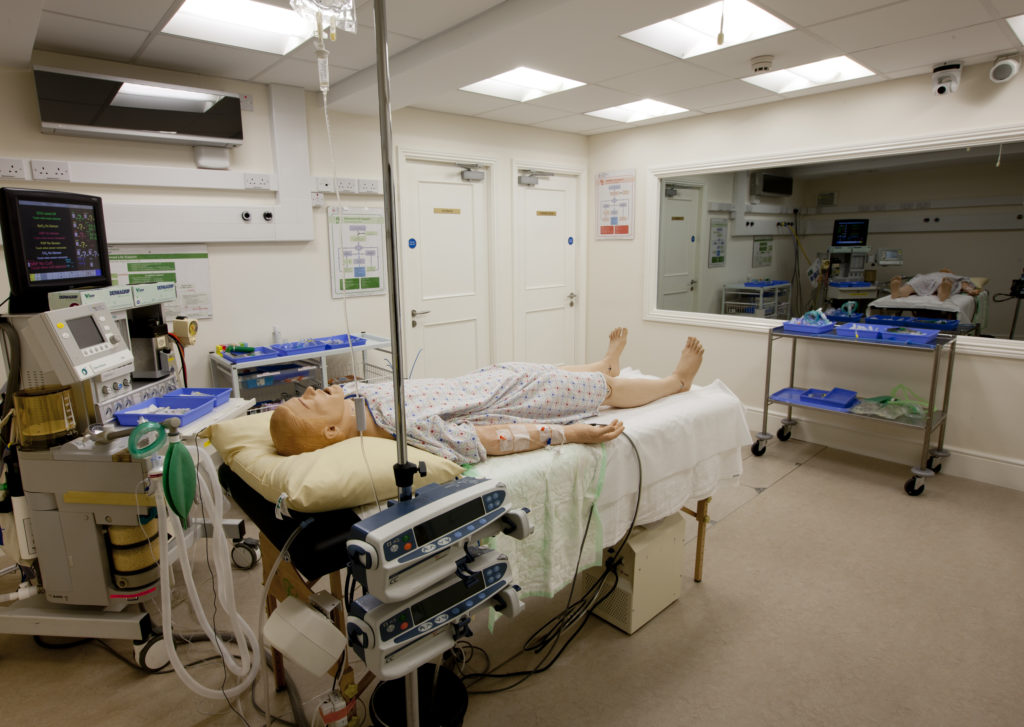
Operating Theatre Simulation Suite, as pictured at the opening in 2010.
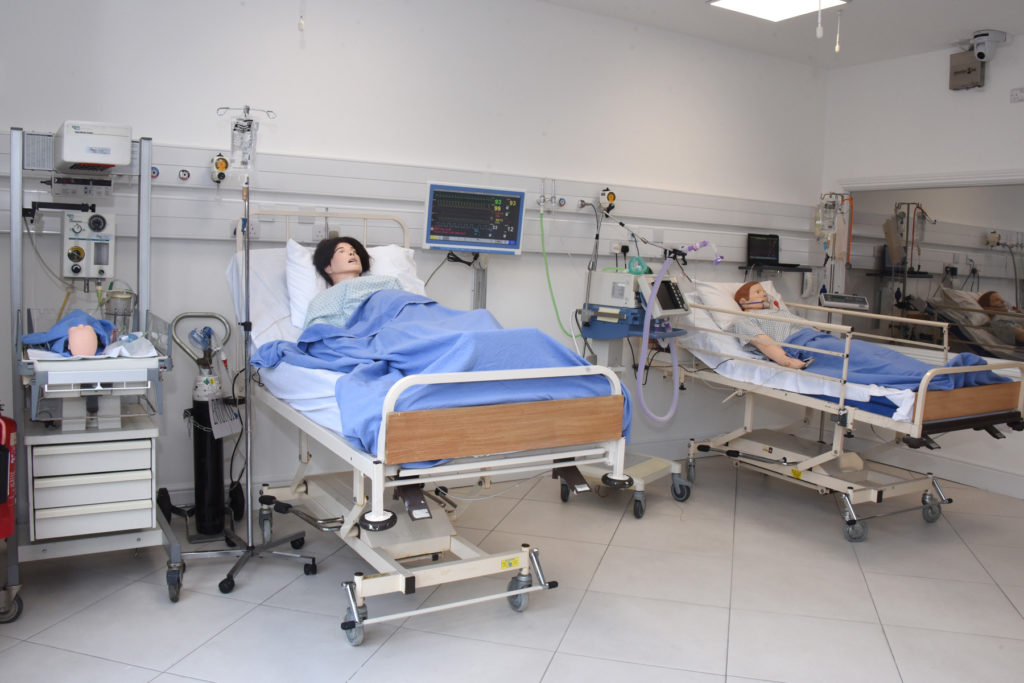
Critical Care Simulation Suite, as pictured at the opening in 2018.
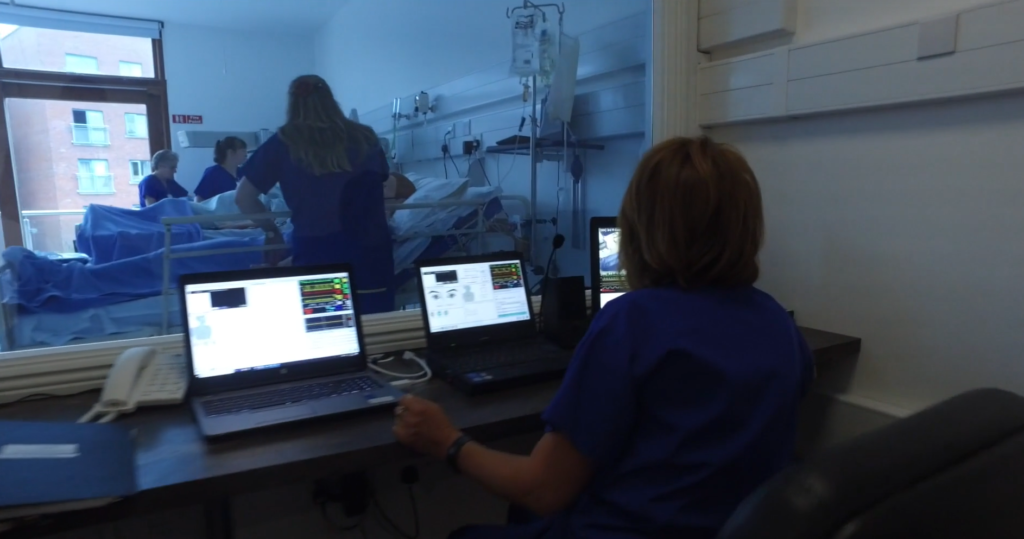
Critical Care Simulation Suite – view from the Control Room
Simulation courses are divided into two 6-month terms: January-June and July-December (aligning with rotations)
There are 10 different mandatory Simulation Courses. In total trainees attend simulation courses during the 6-year training programme (see below).
5 courses are done in SAT Years 1-4
- AE
- ARREST
- COAST
- PAE
- SICC
4 courses are done in SAT Years 5-6
- MASCOT 1 OR MAE (these are equivalent)
- MASCOT 2
CDMP
A-Crisis
- All SAT 1-3 trainees will take AE, ARREST, and COAST.
- SAT 4-5 trainees will take SICC, PAE, MASCOT 1 and MASCOT 2. Some can take A-CRISIS and CDMP if already completed other courses.
- SAT 6 trainees will take A-CRISIS and CDMP or any other course they have not yet completed.
Simulation Course Descriptions
CORE MANDATORY COURSES:
AE (Anaesthesiology Emergencies)
Course Content: This course is often the first experience of simulation-based training that the candidates have. It focuses on intraoperative emergencies. It offers trainees the opportunity to practice managing potentially life-threatening scenarios in a safe setting and introduces trainees to the concepts of crisis resource management.
ARREST (Anaesthesiology Related Rare Emergencies Simulation Training)
Course Content: This course focuses on rare, but clinically significant anaesthesiology-related emergencies. It offers trainees the opportunity to practice managing potentially life-threatening scenarios in a safe setting. It allows trainees to refresh their knowledge on clinical guidelines for anaesthesiology emergencies, and to explore the importance of non-technical skills in emergency situations.
PAE (Paediatric Anaesthesiology Emergencies)
Course Content: This course focuses on management of complications in paediatric anaesthesiology. It covers both common critical incidents in the paediatric population, and some more rare, but life-threatening events. Many of the scenarios covered are all based on real-life cases encountered by consultants during their careers. Trainees may not yet have rotated through a paediatric hospital, so this course allows them to practice managing emergencies in this uniquely challenging patient population, in a low-risk environment.
SICC (Simulation in Intensive and Critical Care)
Course Content: This course focuses on care of the critically unwell adult patient. It simulates common emergency medical scenarios that anaesthesiology trainees will be expected to manage in the course of their critical care rotations.
COAST (Crisis in Obstetric Anaesthesiology Simulation Training)
Course Content: This course simulates obstetric emergencies, both those caused by anaesthesiology and those caused by pregnancy, but often involving the anaesthetic team in their management. It highlights the potential pitfalls of managing an obstetric patient, as well as providing an opportunity for trainees to practice high-stake cases in a low-risk environment.
MASCOT ONE (Multidisciplinary Anaesthesiology and Surgery Crisis Operation Training ONE)
Course Content: These multidisciplinary courses are for surgical and anaesthesiology trainees. They allow trainees from both disciplines to gain insight into the decision-making process of the other. The scenarios involve cases that require the equal input of both surgical and anaesthesiology teams. The courses have a strong emphasis on non-technical skills/Human Factors and Crises resource management.
MASCOT TWO (Multidisciplinary Anaesthesiology and Surgery Crisis Operation Training TWO)
Course Content: These multidisciplinary courses are for surgical and anaesthesiology trainees. They allow trainees from both disciplines to gain insight into the decision-making process of the other. The scenarios involve cases that require the equal input of both surgical and anaesthesiology teams. The courses have a strong emphasis on non-technical skills/Human Factors and Crises resource management.
A-CRISIS
Course Content: This course is for the more clinically experienced trainee. It focuses on difficult airway events, which challenge the senior trainee’s ability to utilise both their clinical knowledge and Human Factor skills to manage the emergencies as they unfold.
CDMP (Clinical Decision Making in Paediatrics)
Course Content: This course is for senior trainees. The clinical scenarios are designed to challenge the participant’s decision-making process, and clinical preconceptions, as well explore biases we all may have. While it covers important clinical presentations, the focus of this course is on metacognition.
ADDITIONAL / ELECTIVE COURSES
Train the Trainer – Developing your Simulation Debriefing Skills
Course Content: The College of Anaesthesiologists of Ireland has been running a Train the Trainer Simulation Instructors course since 2009. Initially developed with the view of training an adequate pool of instructors for College simulation courses, it has quickly become a popular educational event well attended by a wide and diverse group of participants from the medical, nursing and other healthcare professions who have a strong interest in simulation-based education. More than 200 participants have participated to date. The course focuses on delivering debrief after simulation and is delivered through a blend of lectures, interactive discussions, hands-on practice and video review followed by expert feedback. It usually takes place in June and is advertised via the College website as well as electronic communication with other academic and healthcare institutions.
A-Crisis for specialists/consultants
Course Content: A-CRISIS for Consultants represents, as the title suggests, an opportunity for specialists in anaesthesiology to refresh their knowledge as well as practice their technical and non-technical skills in a safe simulated clinical environment. The letter A in the title stands for Anaesthesiology, Assessment and Airway management but also for well described principles of crisis management such as Attention, Awareness and Anticipation. Delegates have the opportunity to share expertise as well as reflect on their own practice during post-simulation peer-facilitated debrief. This course is suitable for Anaesthesiologists registered for PCS with CAI.
Transport of the Critically Ill Patient (ACCT)
The Adult Critical Care Transport Course was developed by the National Ambulance Service Critical Care and Retrieval Services (NAS CCRS) to meet the training needs of the multi-disciplinary team of doctors, nurses and paramedics who may be required to move a critically ill adult patient by ambulance. The course addresses the equipment, preparation, emergencies in transport, CRM and logistics all delivered in a blended format including simulation.
MEPA (Management of Emergencies in Paediatric Anaesthesiology)
Course Content: The Management of Emergencies in Paediatric Anaesthesiology (MEPA) is a simulation course for experienced practitioners. The highly regarded MEPA course uses an internationally validated curriculum and has already been rolled out in 60 centres across Australia, Canada, UK, Continental Europe and Asia. Using evidence-based and peer-reviewed scenarios within high-fidelity simulation, the course provides a platform to hone clinicians’ skills according to current best practice in paediatric anaesthesiology emergencies. The MEPA course is suitable for anaesthesiologists registered for PCS with CAI who are involved in the management of paediatric patients on both an occasional and regular basis.
Check out information on UPCOMING EVENTS (link).
Train the Trainer – Developing your Simulation Debriefing Skills
Course Director: A/Prof. Crina Burlacu, CAI Director of Simulation & Consultant Anaesthesiologist Course Faculty: Dr. Eva Doherty, RCSI Director of Human Factors in Patient Safety; Dr. Eilis Condon, CAI Deputy Director of Training & Consultant Anaesthesiologist; Dr. Aine Cafferkey, CAI Past Simulation Fellow & Consultant Anaesthesiologist Course Content: The College of Anaesthesiologists of Ireland has been running a Train the Trainer Simulation Instructors course since 2009. Initially developed with the view of training an adequate pool of instructors for College simulation courses, it has quickly become a popular educational event well attended by a wide and diverse group of participants from the medical, nursing and other healthcare professions who have a strong interest in simulation-based education. More than 200 participants have participated to date. The course focuses on delivering debrief after simulation and is delivered through a blend of lectures, interactive discussions, hands-on practice and video review followed by expert feedback. It usually takes place in June and is advertised via the College website as well as electronic communication with other academic and healthcare institutions.
A-Crisis
Course Lead: A/Prof Crina Burlacu, CAI Director of Simulation & Consultant Anaesthesiologist A-CRISIS for Consultants represents, as the title suggests, an opportunity for specialists in anaesthesiology to refresh their knowledge as well as practice their technical and non-technical skills in a safe simulated clinical environment. The letter A in the title stands for Anaesthesiology, Assessment and Airway management but also for well described principles of crisis management such as Attention, Awareness and Anticipation. Delegates have the opportunity to share expertise as well as reflect on their own practice during post-simulation peer-facilitated debrief. This course is suitable for Anaesthesiologists registered for PCS with CAI.
Transport of the Critically Ill Patient
The Adult Critical Care Transport Course was developed by the National Ambulance Service Critical Care and Retrieval Services (NAS CCRS) to meet the training needs of the multi disciplinary team of doctors, nurses and paramedics who may be required to move a critically ill adult patient by ambulance. The course addresses the equipment, preparation, emergencies in transport, CRM and logistics all delivered in a blended format including simulation. The College of Anaesthesiologists of Ireland (CAI) has entered a partnership with NAS CCRS in order to deliver this course to Specialist Anaesthesia Trainees in their first 3 years of training. Faculty include Dr David Menzies, National Clincial Lead for Adult Retrieval/Mobile Intensive Care Ambulance Service (MICAS), Dr Karl Knapmann, Consultant in Anaesthesiology and Retrieval, Ms Anna Marie Murphy, MICAS Coordinator and Mr Shane Mooney, Education and Competency Assurance Officer, National Ambulance Service.
MEPA (Management of Emergencies in Paediatric Anaesthesiology)
Course Lead: Dr David Greaney, FCAI, MSc, FJFICMI, Consultant Paediatric Anaesthesiologist, Our Lady’s Children’s Hospital, Crumlin Biography: Dr. David Greaney is a Consultant in paediatric anaesthesia in Our Lady’s Children’s Hospital, Crumlin. He has completed fellowships in Toronto’s Hospital for Sick Children in both pediatric general anaesthesia and paediatric cardiac anaesthesia. Prior to this, he completed a simulation fellowship through the College of Anaesthesiologists in Ireland. He has delivered the MEPA course to anesthesiologists at all levels of experience and has also led training courses for simulation educators. His simulation research interests include assessment of optimal debriefing strategies in simulated anaesthetic crises, and has both published and presented his research internationally. Course Content: The College of Anaesthesiologists of Ireland (CAI) is delighted to introduce The Management of Emergencies in Paediatric Anaesthesiology (MEPA) simulation course for experienced practitioners. The highly regarded MEPA course uses an internationally validated curriculum and has already been rolled out in 60 centres across Australia, Canada, UK, Continental Europe and Asia. Using evidence-based and peer-reviewed scenarios within high-fidelity simulation, the course provides a platform to hone clinicians’ skills according to current best practice in paediatric anaesthesiology emergencies. The MEPA course is suitable for anaesthesiologists registered for PCS with CAI who are involved in the management of paediatric patients on both an occasional and regular basis.
Stats of Simulation Courses for SAT and CPD-SS Delivered per Year
The Anaesthesiology Bootcamp is a blended learning programme that was initially developed by Prof. Crina Burlacu – Consultant Anaesthesiologist & Director of Simulation – and Drs. Caoimhe Duffy and Zeenat Nawoor-Quinn – Specialist Anaesthesiology Trainees and Simulation Fellows – in the Department of Anaesthesiology, Intensive Care and Pain Medicine at St. Vincent’s University Hospital (SVUH). It encompasses reading material, pre-course and post-course assessment, lectures, clinical skill stations and simulated clinical scenarios. It was first delivered in SVUH in July 2018 to a group of novice anaesthesiology trainees and nurses. The College of Anaesthesiologists of Ireland (CAI) Training and Quality and Safety Committees subsequently recommended that the Bootcamp is rolled out nationally and invited other Departments of Anaesthesiology to roll out the programme. In 2019, a number of other Departments at St. James’s University, Tallaght University Hospitals, University Hospital Galway, Sligo University and Letterkenny University Hospitals, have delivered the programme. The Anaesthesiology Bootcamp was Finalist at the Irish Healthcare Awards 2019 and was reported widely at national and international meetings as well as in the Irish Journal of Medical Science https://doi.org/10.1007/s11845-019-02146-w The goal of the Bootcamp is to guide novice trainees during their first year of exposure to the specialty of anaesthesiology by creating a framework to expand cognitive, technical and non-technical skills as well as an opportunity to swiftly adjust to their new working environment. In doing so, this provides the novice trainee with a “jump start” to their career in anaesthesiology allowing them to take advantage of early training opportunities within their actual clinical environment. We now invite Departments of Anaesthesiology to deliver the programme to anaesthesiology trainee starting on the CAI SAT scheme in July 2020. For course material and more information, please email cburlacu@coa.ie Please download detailed information on the Programme for the Anaesthesiology Bootcamp (.pdf).
Photos from SVUH Anaesthesiology Bootcamp in July 2018
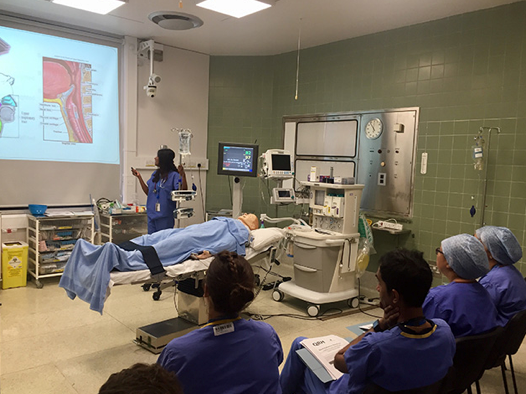
Dr. Zeenat Nawoor – Quinn delivering a lecture
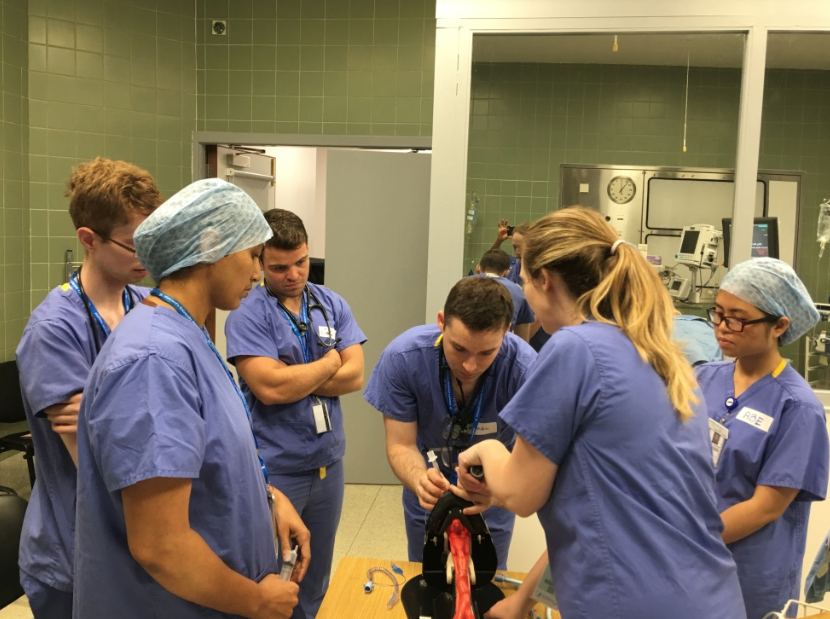
Dr. Caoimhe Duffy supervising a clinical skills station

Demonstration of anaesthesia machine check
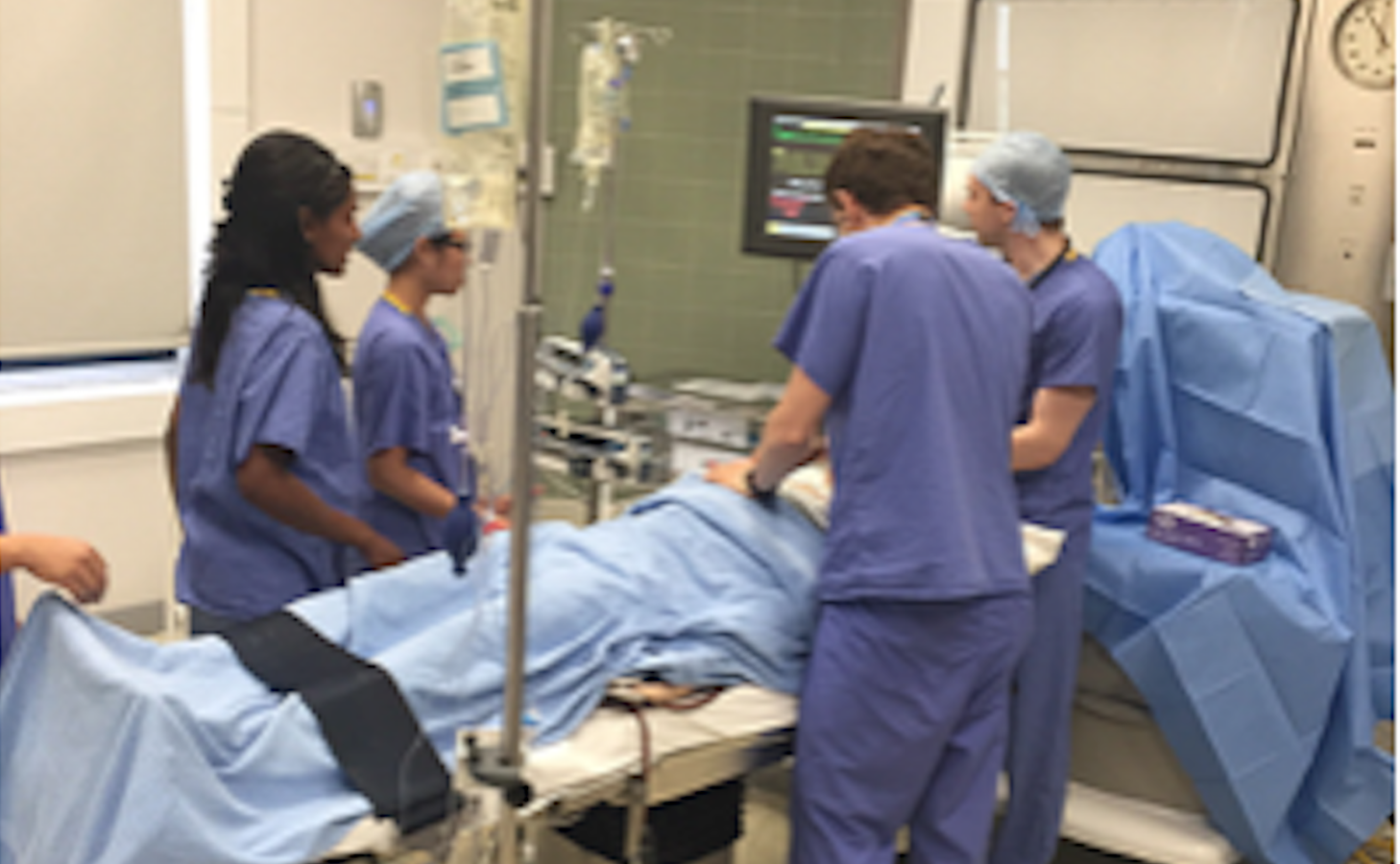
Simulated scenario
IAS 2024 will be held in Galway on Friday 24thMay 2024. This will be hosted in the ICAPSS centre, University of Galway and held in collaboration with the National Simulation Office, HSE.
Check out our Simulation Centre BLOG for latest NEWS. (link)
When do I get my allocations? SATs will be allocated a course and date in June and December respectively by the CAI. The email will contain the following:
Course name, Course date and Venue.
Simulations Courses form part of mandatory components of the SAT curriculum. Failure to attend may result in a failure to progress. It is the trainee’s responsibility to coordinate leave to attend courses (through rota coordinator/tutor/medical manpower). We recommend this is done at the earliest opportunity. Confirmation of attendance will occur at least 2 weeks prior to the course.
What should I do if I cannot attend A new course date (not necessarily in the same six months) will be arranged for trainees if they cannot attend due to the following reasons:-
- Adequate notification has been given
- Personal or family illness – a GP certificate will be required
- Pre-planned annual leave – requires confirmation from the department or details of flight etc.
- Maternity leave
- Sitting an exam two weeks prior to the allocated course date – requires confirmation of the examination
If the hospital refuses the trainee leave due to constraints with the department, a letter to the simulation administrator should be sent from the head of department or tutor.
Apart from the reasons listed above a new course date will not be arranged for a trainee for that six month period. Failure to attend on the day or failure to reply two weeks in advance will result in a charge of €100 directly to the trainee. Failure to attend on the day or failure to reply two weeks in advance may mean failure to progress on the training programme. If, for reasons outside our control, the CAI needs to cancel a course, a place on the same course will be offered to the trainee on a different date with as much notice as possible.
How can I register for simulation courses? SATs will be allocated positions on mandatory courses (as above). Due to the high demand for the college simulation courses there is limited additional spaces on many courses. Additional spaces will be advertised to registered CPD-SS trainees via email. If you are interested and available to attend a given course, you can initially register this interest. When demand for these places exceeds availability, places will be randomly assigned. Any additional spaces on for a given course will subsequently be randomly offered to those who registered an interest.
How can I get funding to attend simulation courses? The Continuous Professional Development Support Scheme (CPD-SS) is an educational programme specifically designed for NCHDs who are not enrolled on a recognised post-graduate training programme. Doctors enrolled on the CDP-SS are entitled to attend training events and activities organised and approved by the College at no cost to themselves. The aim of the programme is to support NCHDs to meet their requirements under the Professional Competence Scheme. Once enrolled, you will be able to access training and educational activities worth up to 20 external CPD credits or totalling three days per year, whichever is greatest.
CPD-SS Eligibility Criteria
- You must be enrolled with the College for PCS
- You must hold the NCHD Contract 2010
- You must work within the public health service
- You must not be enrolled on either an Intern training scheme or a specialist training scheme
- You must be registered on either the Supervised or General Division of the Register as held by the Irish Medical Council
What courses are available to me on the CPD-SS? We offer a wide variety of courses throughout the year, details of which are available on our website. Examples include:
- Irish Congress of Anaesthesia
- Advanced Airways Management
- Basic Assessment and Support in Intensive Care
- Advanced Vascular Access
- College of Anaesthesiologists Of Ireland Simulation courses
How do I register? Application for CPD SS for the 2023/2024 year are accepted between 10th July and the 29th September 2023. Applications will then reopen in December 2023. Applications are submitted through the CAI Kaizen ePortfolio https://kaizenep.com/#/login. The submitted application must include the following information
- Your full name and date of birth
- Your CAI College ID
- Your Medical Council Registration Number
- Your current work location and job title
Once logged into your Kaizen ePortfolio select the option to create a new event. Under the uncategorised heading, select the option to apply for CPD SS.
Registration is not automatic. You must however be registered with the College for PCS first before you can apply for CPD-SS.
Please don’t hesitate to contact the Clinical Skills and Simulation Centre team for more information on telephone 01 2650600 or email simulation@coa.ie.
 2017 Finalist Irish Education Award for ‘The College of Anaesthetists Simulation Training Programme – Activity and Quality Report 2010 – 2016’ 2016 Commendation Best Education Project Category at the Irish HealthCare Awards 2016 for ‘The College of Anaesthetists Simulation Training Programme – A Quality Report 2010-2016’
2017 Finalist Irish Education Award for ‘The College of Anaesthetists Simulation Training Programme – Activity and Quality Report 2010 – 2016’ 2016 Commendation Best Education Project Category at the Irish HealthCare Awards 2016 for ‘The College of Anaesthetists Simulation Training Programme – A Quality Report 2010-2016’